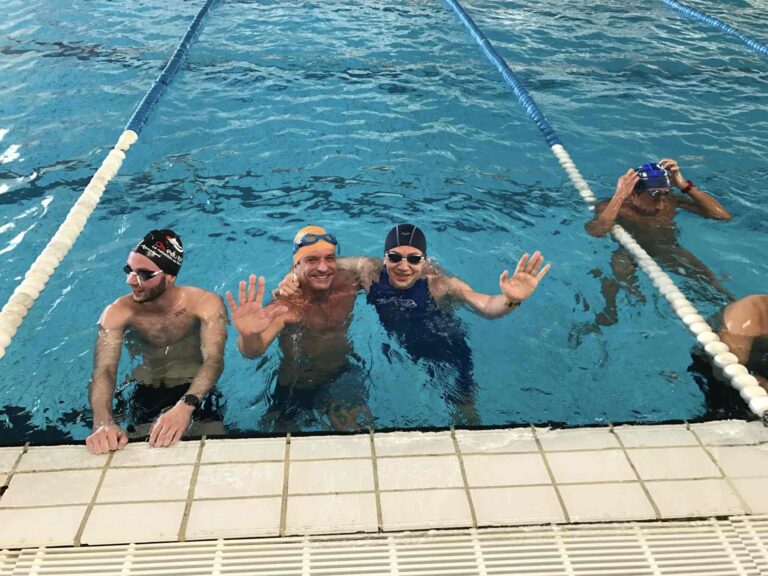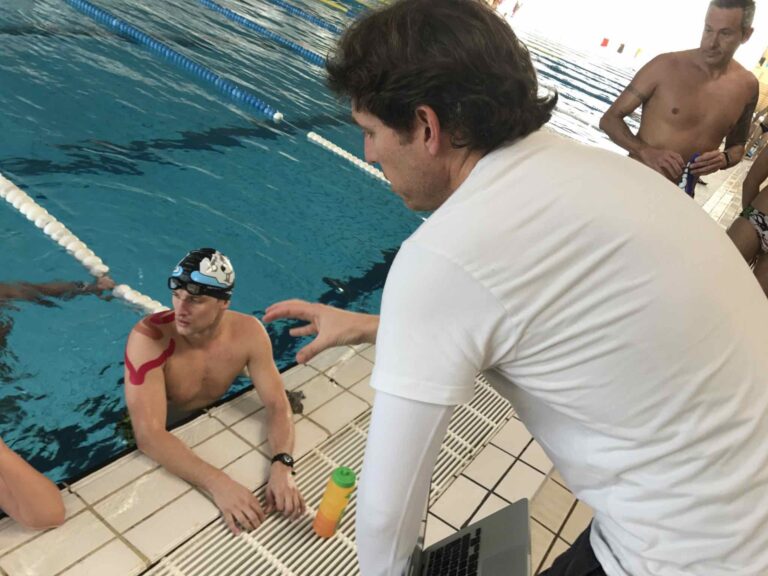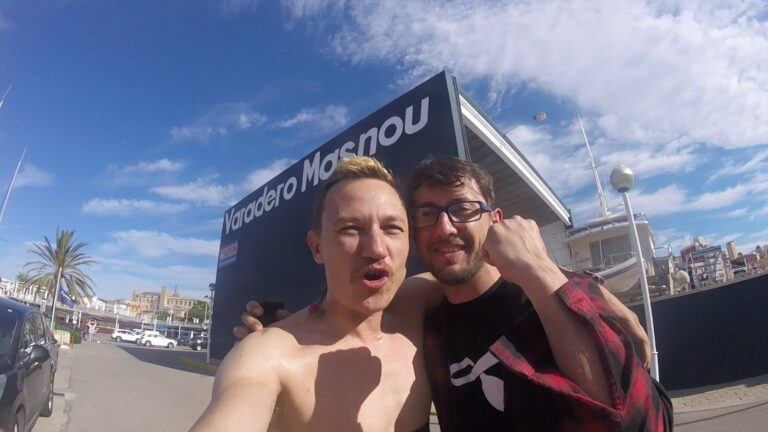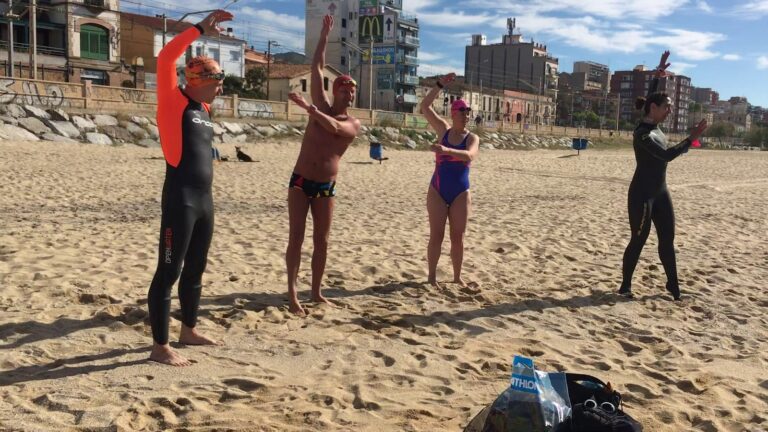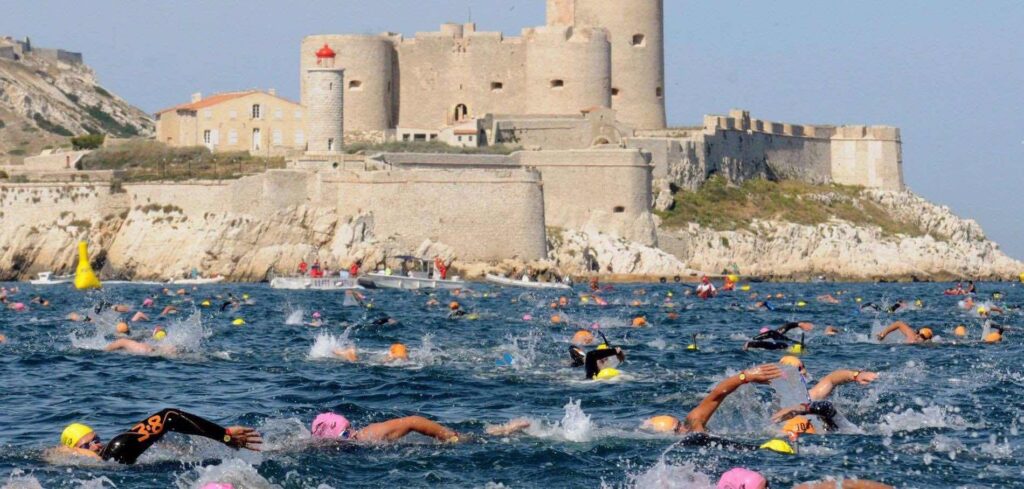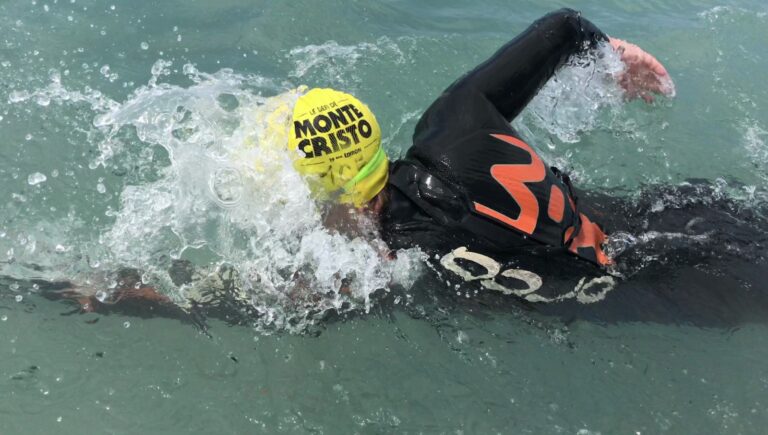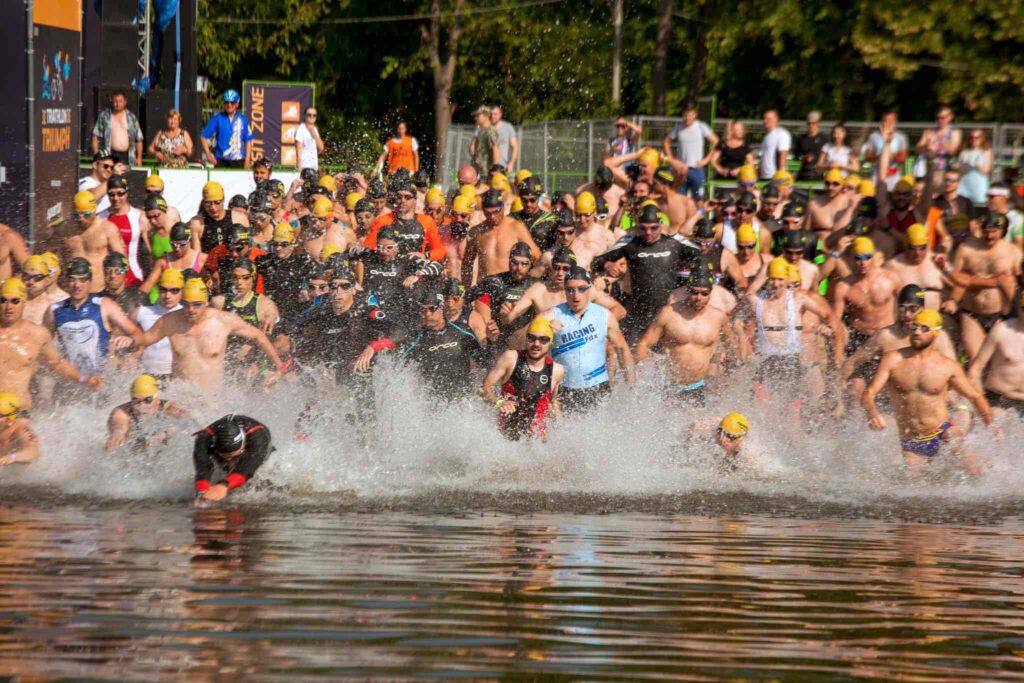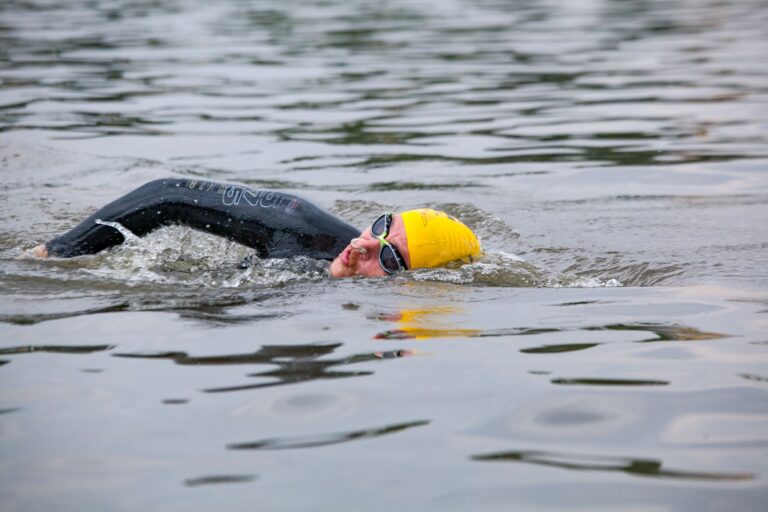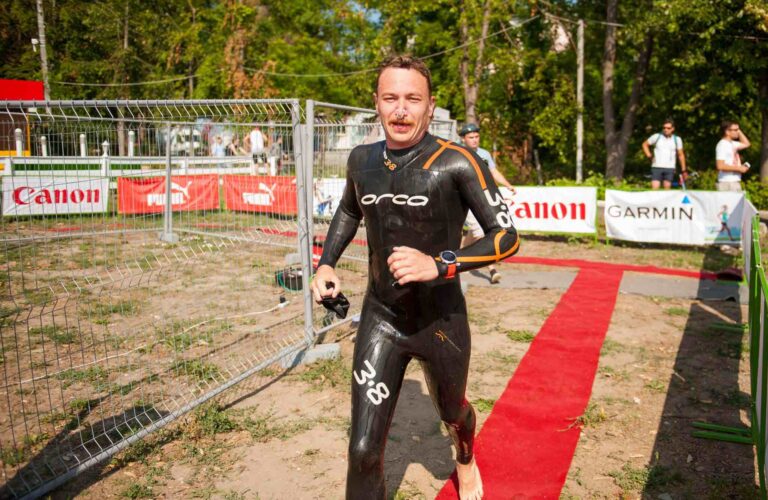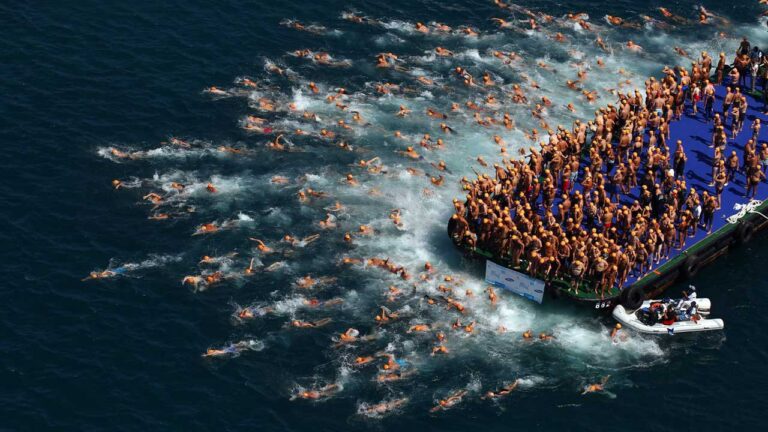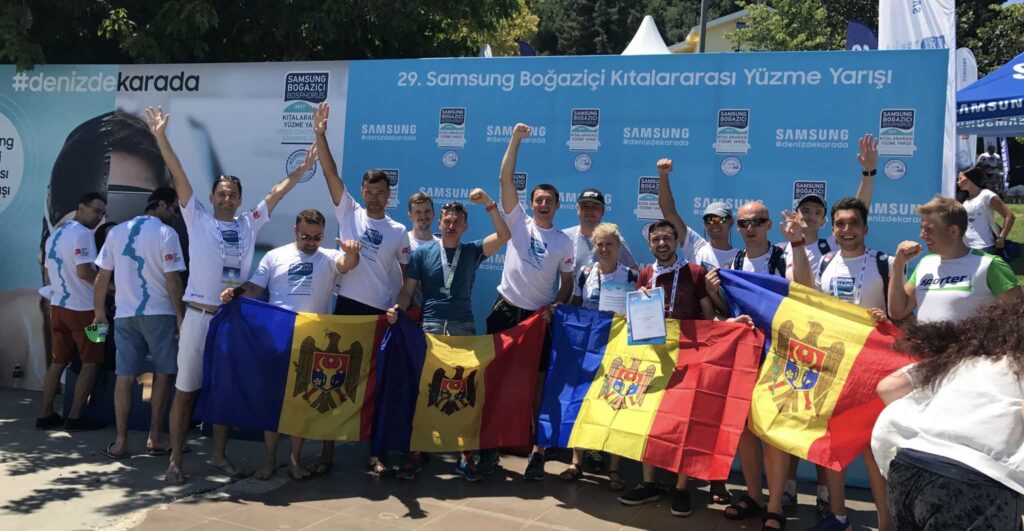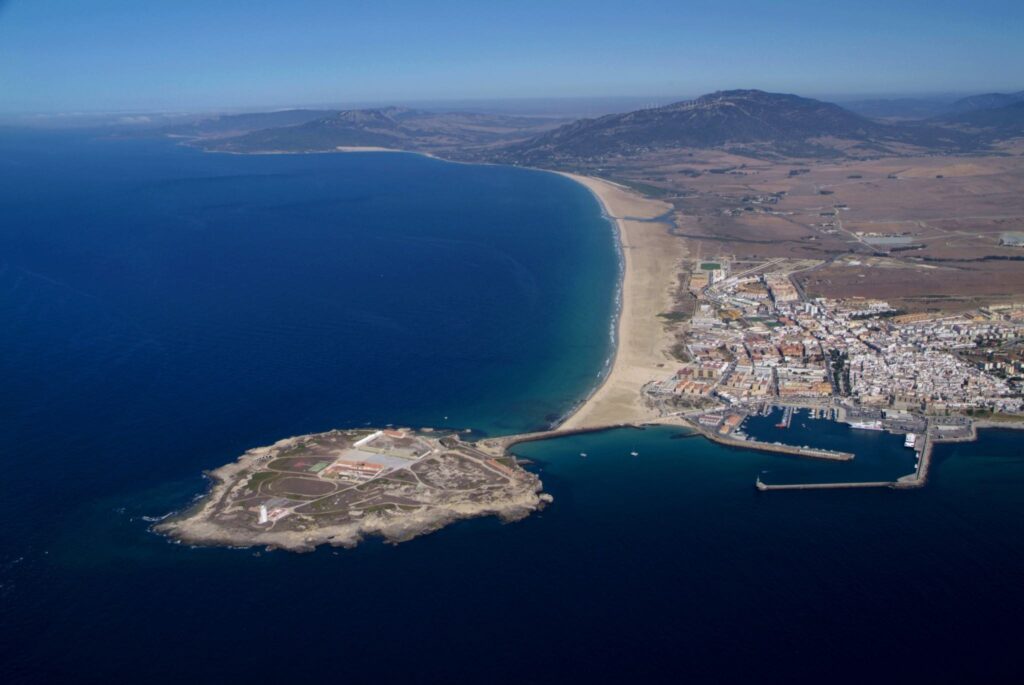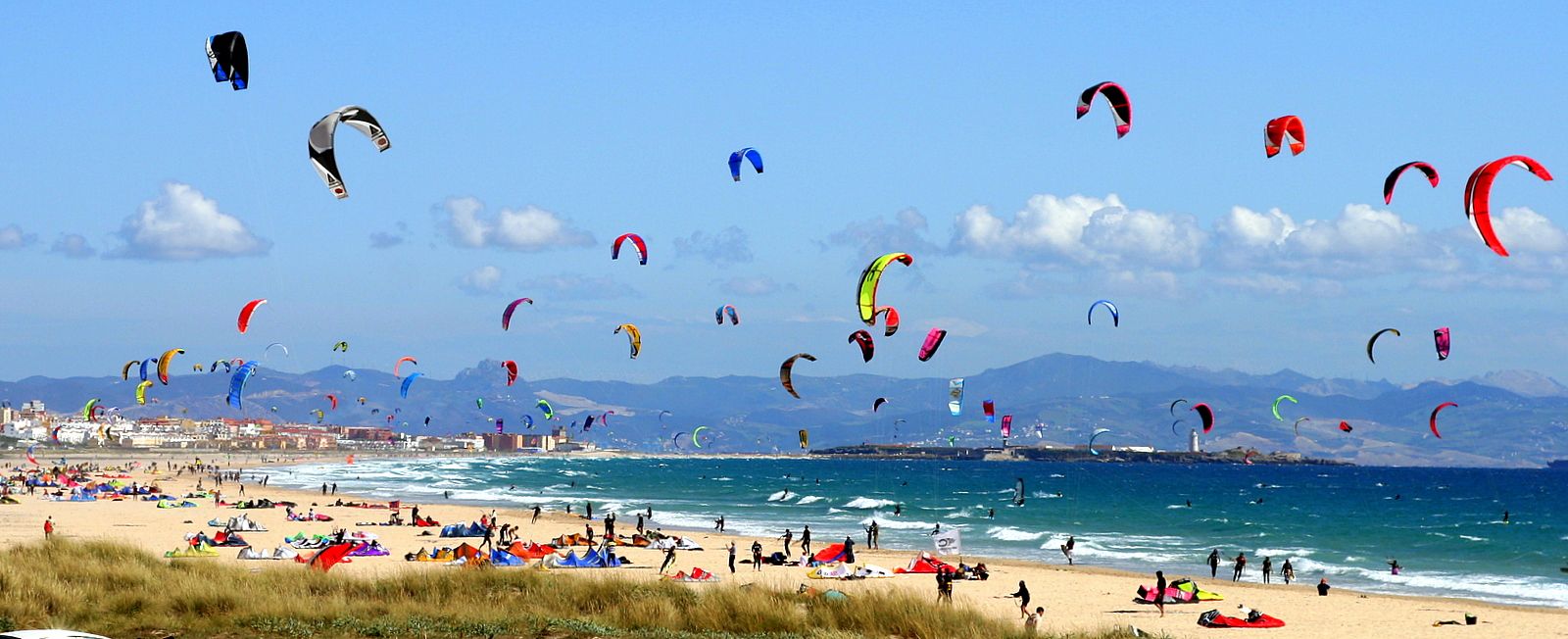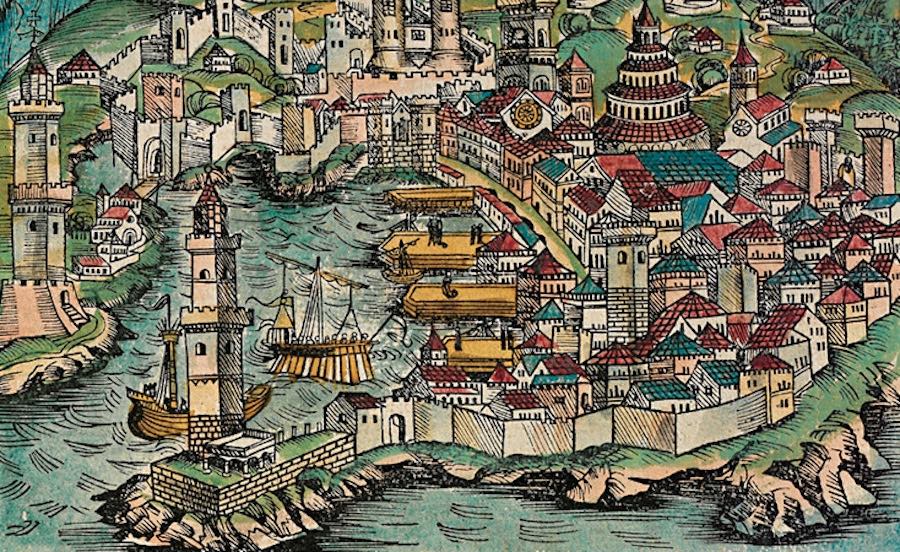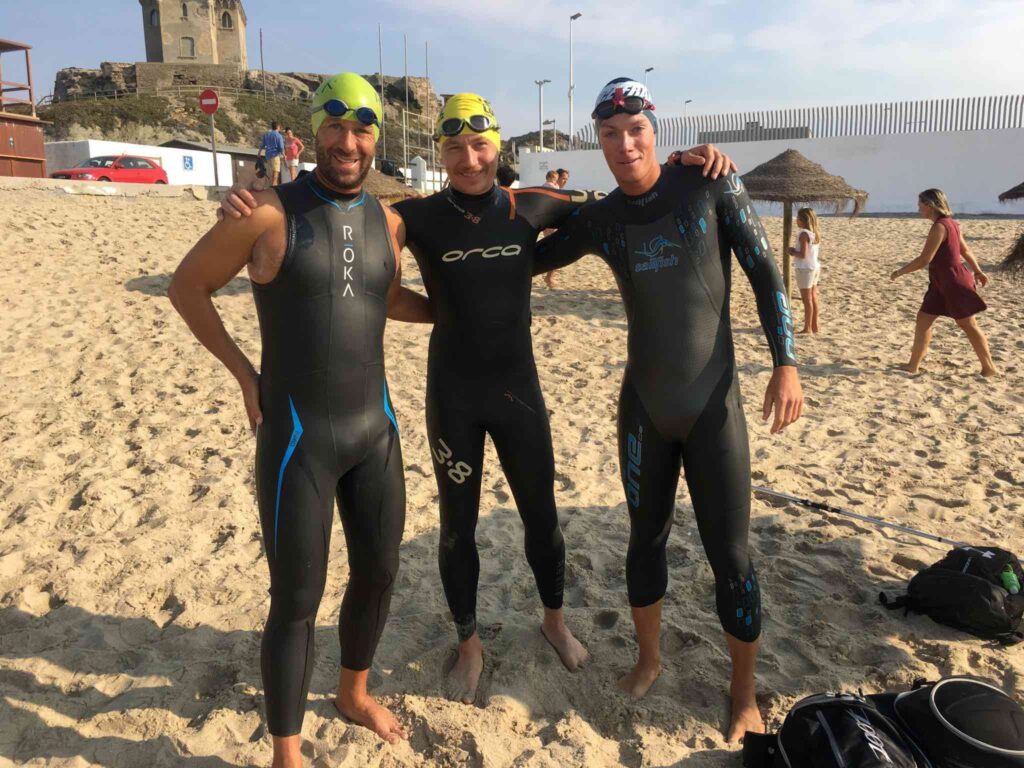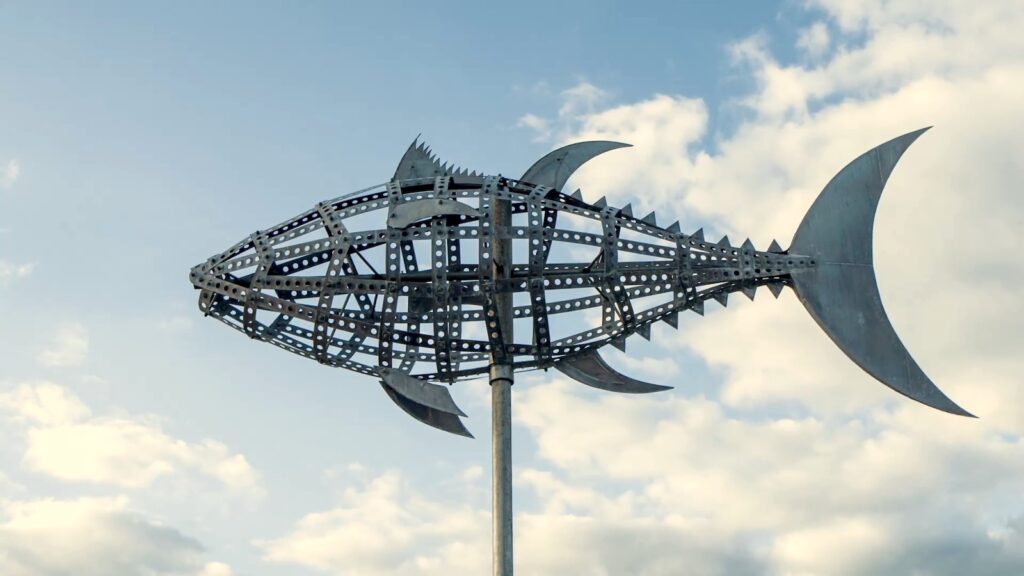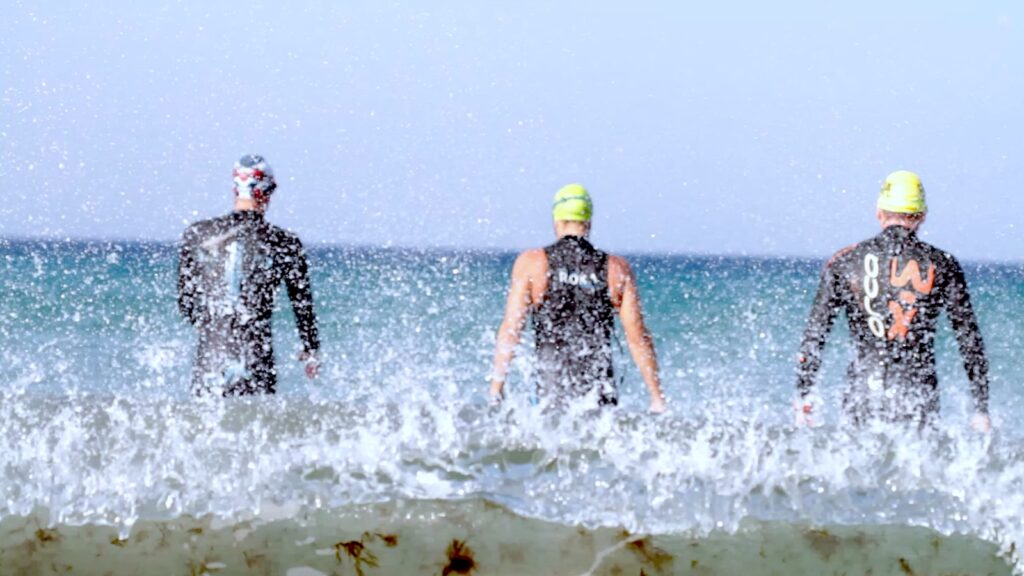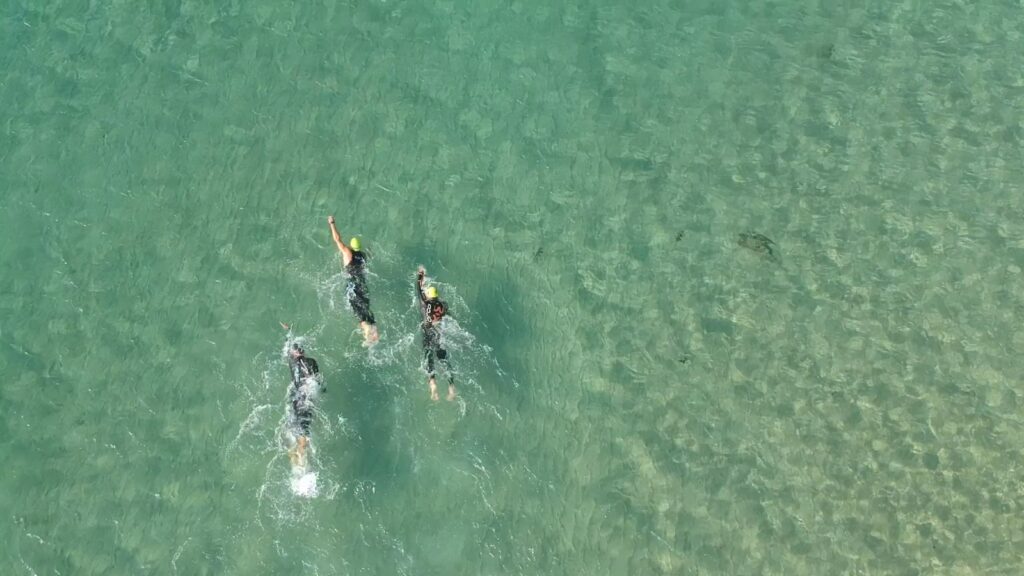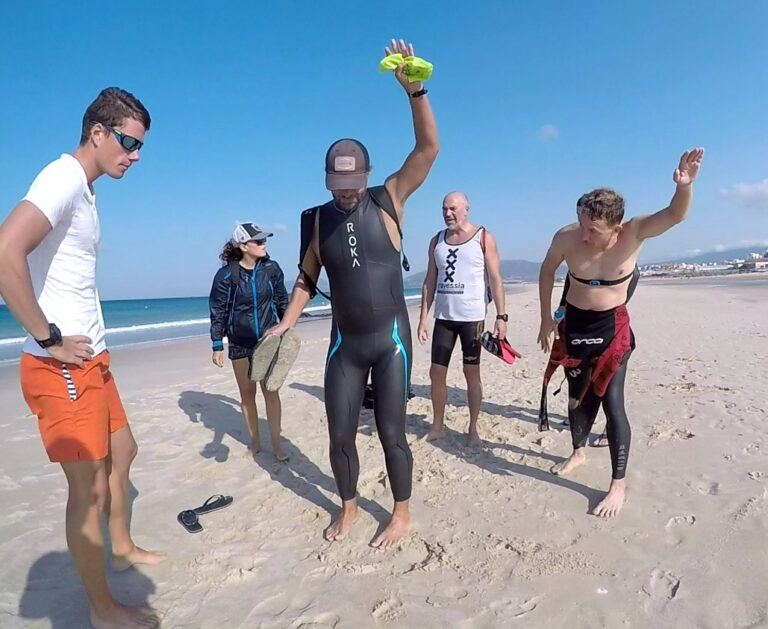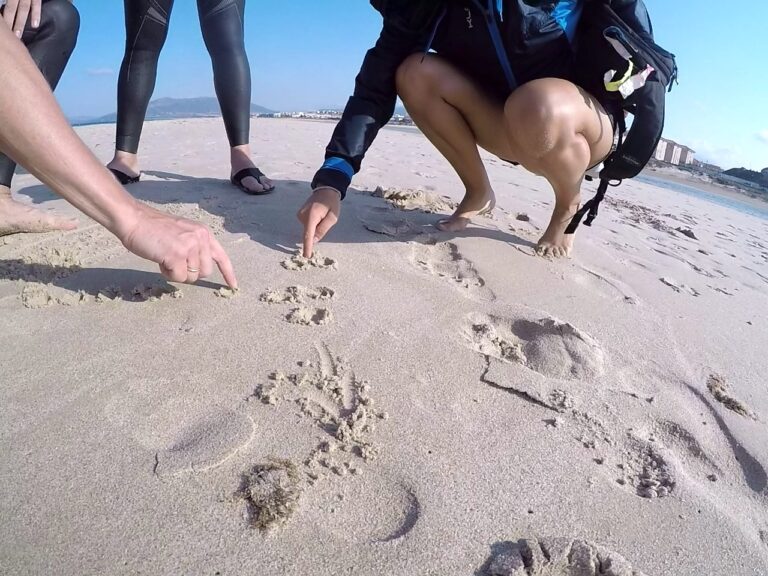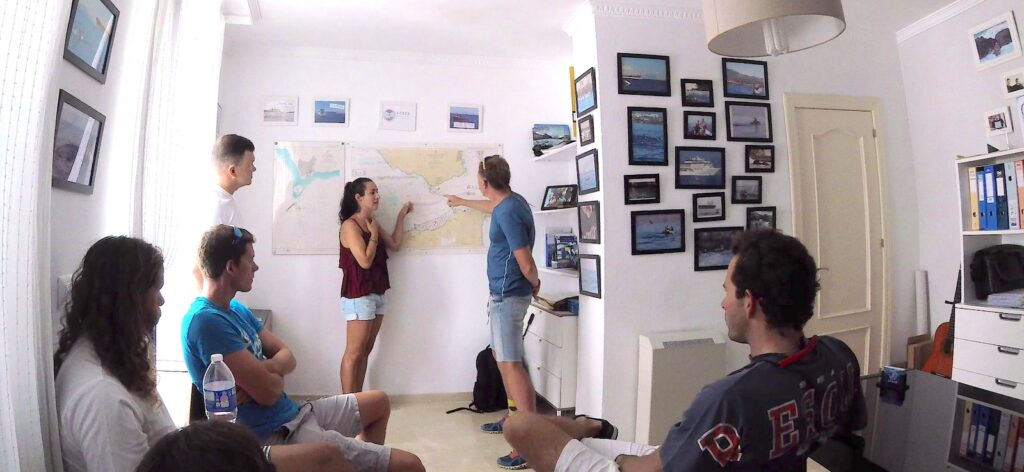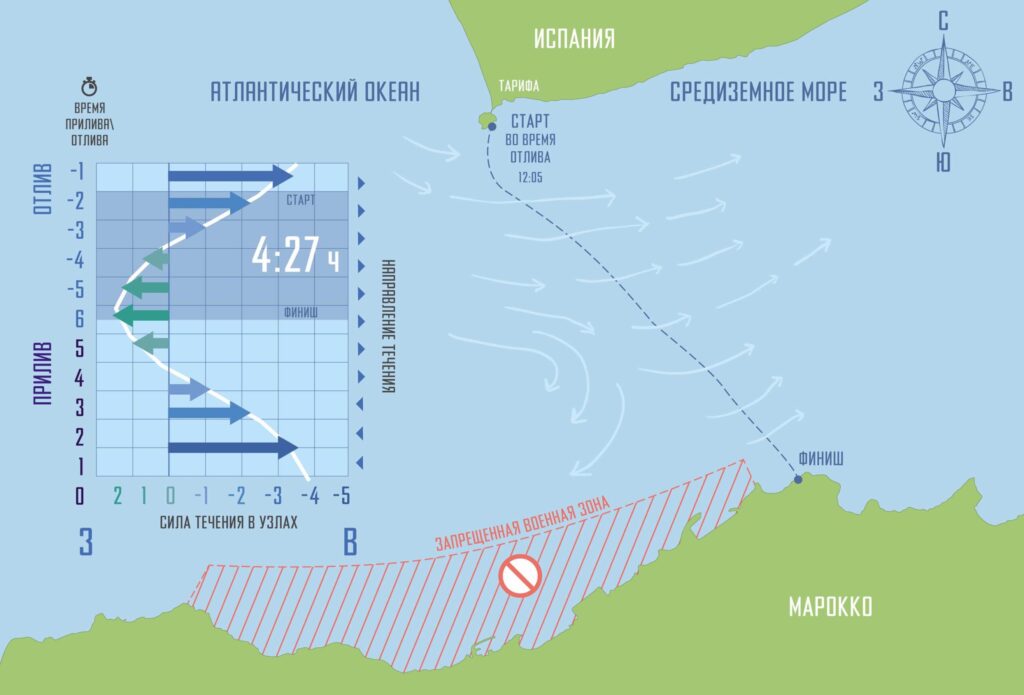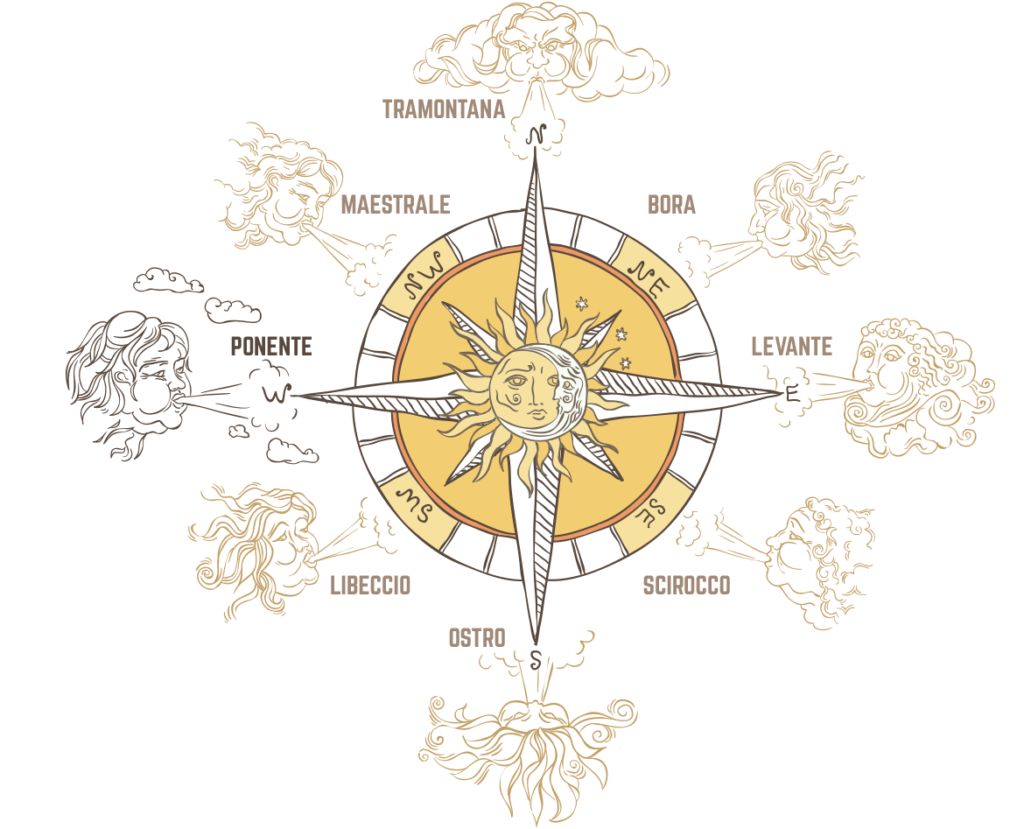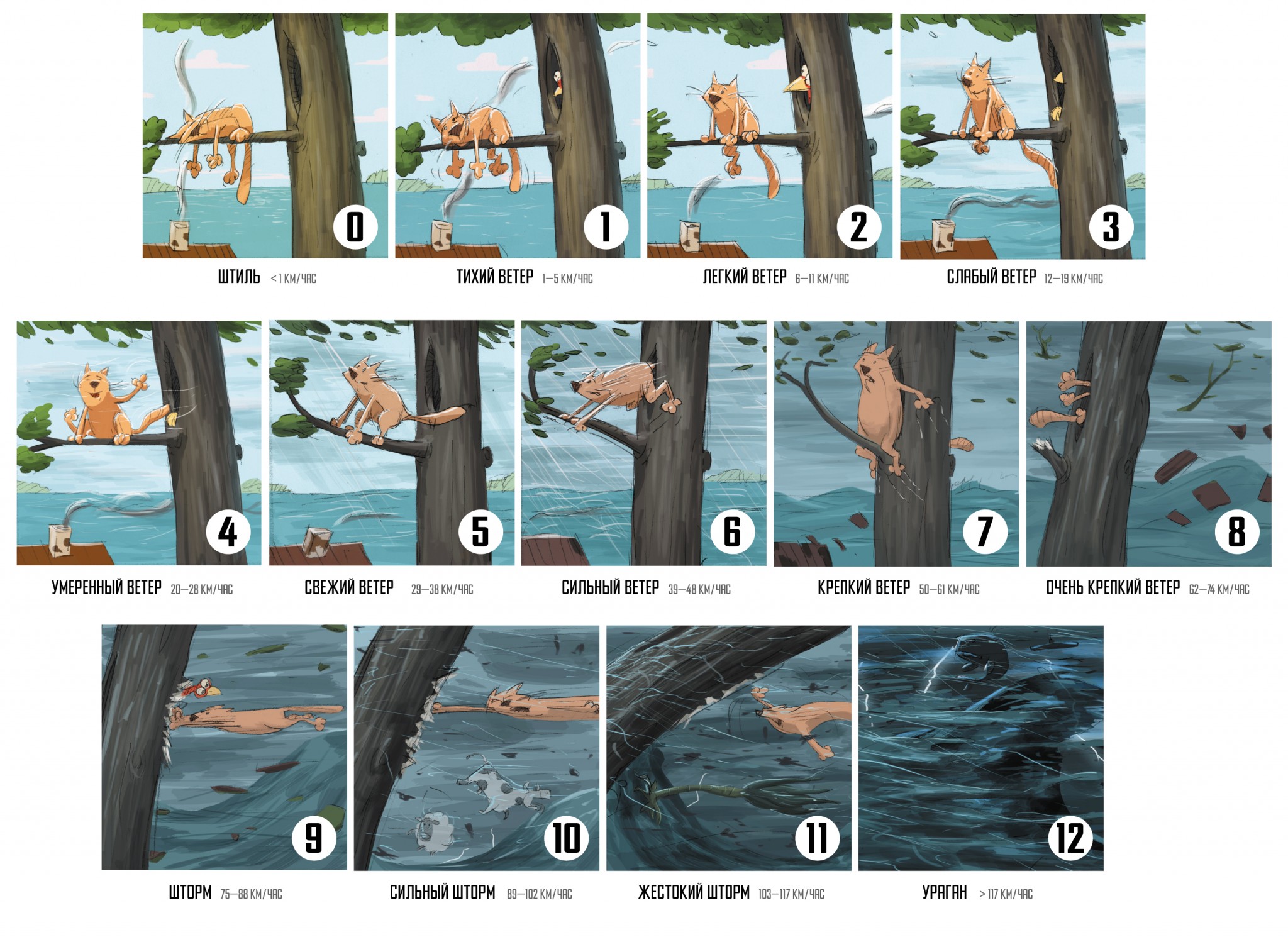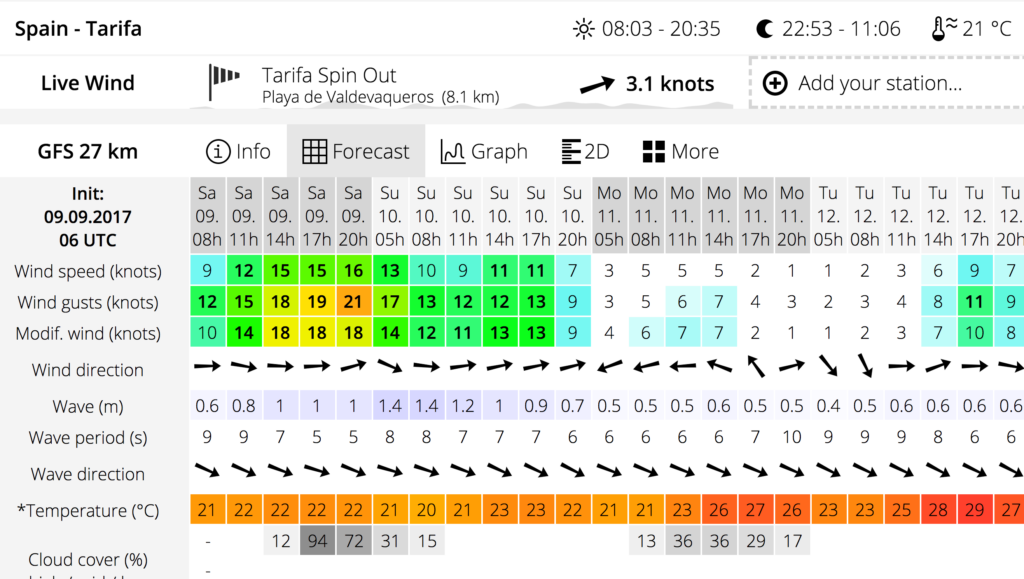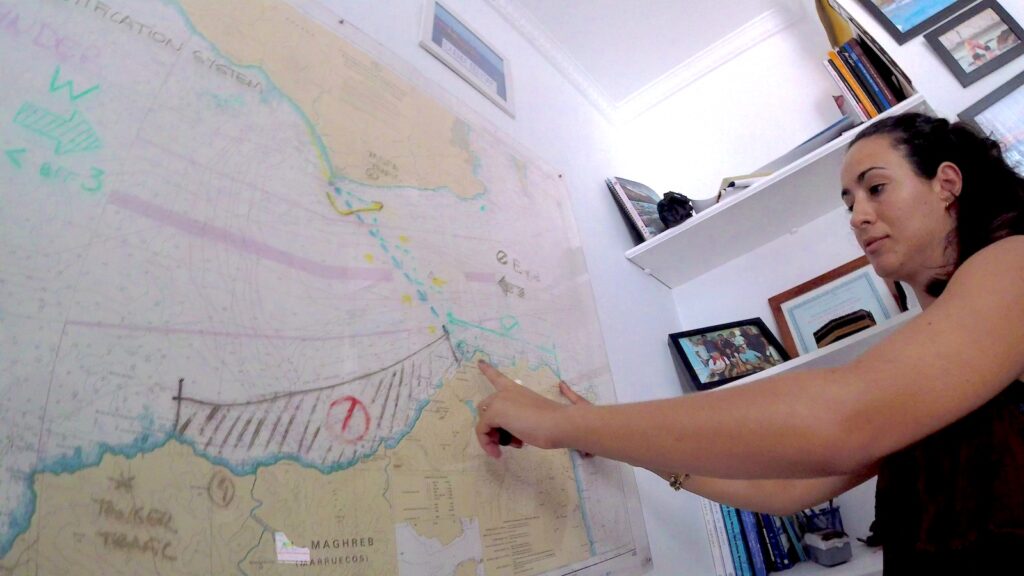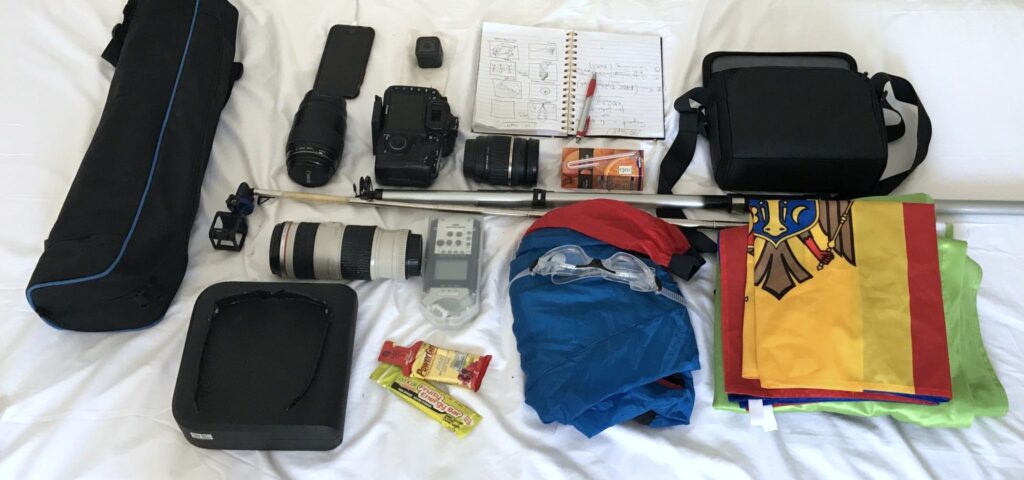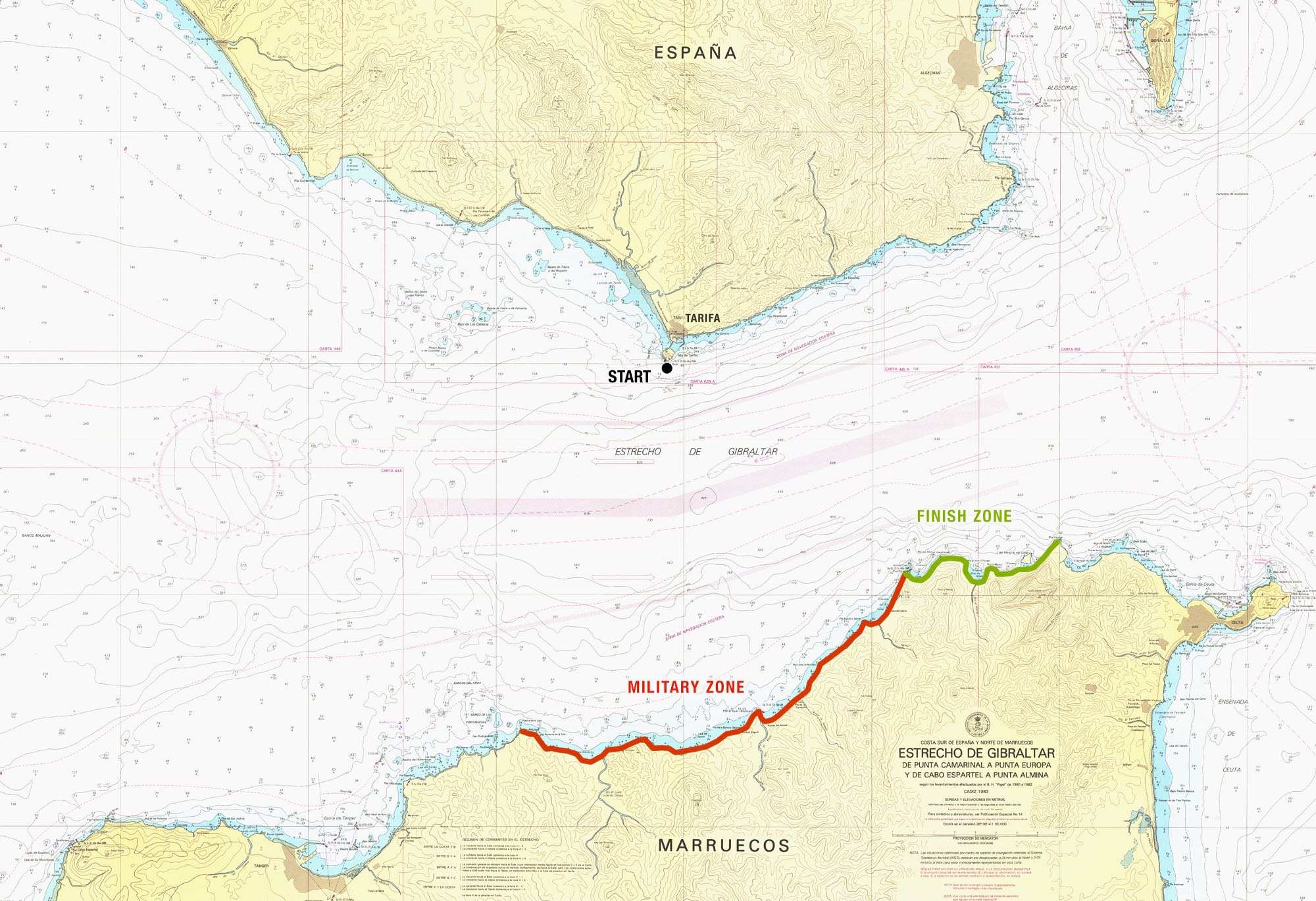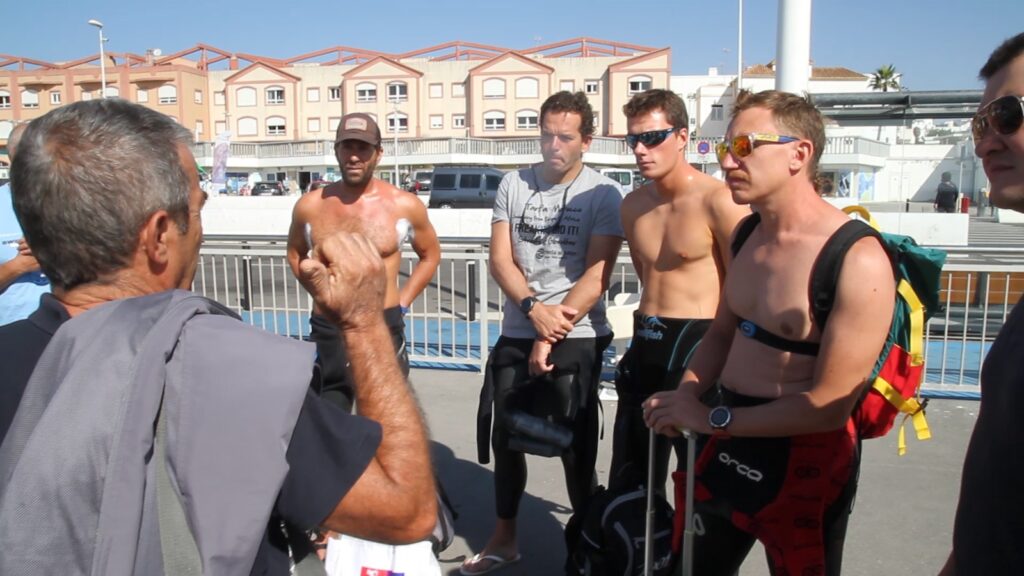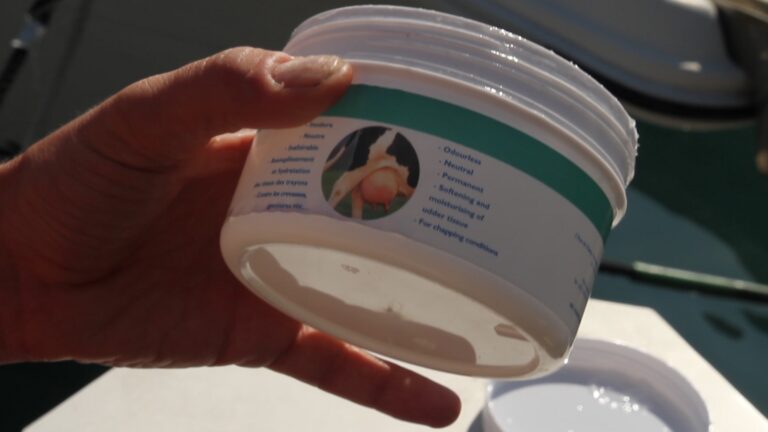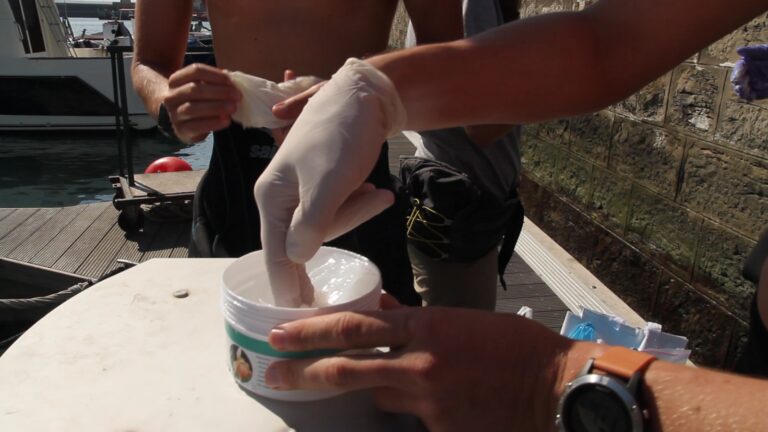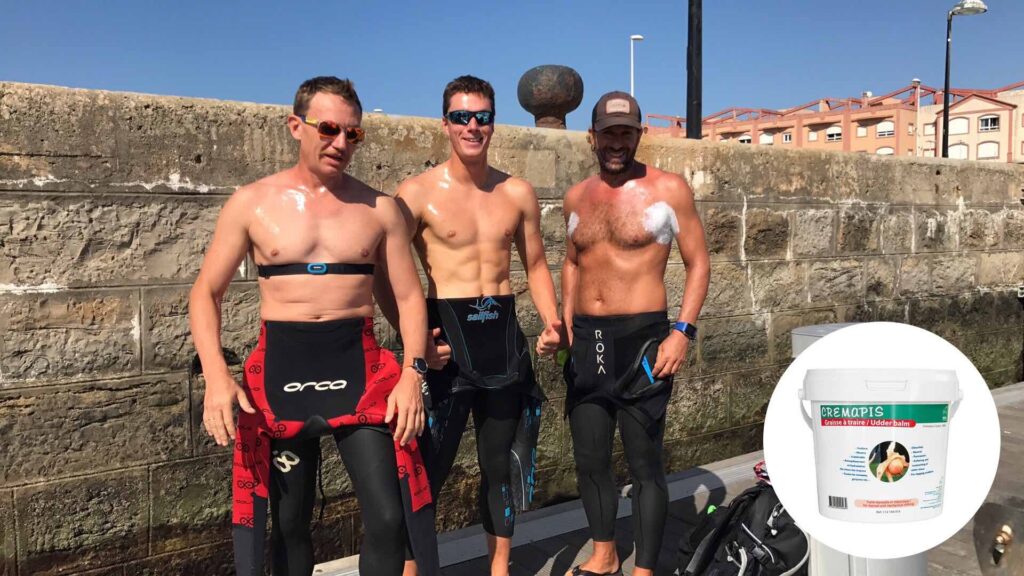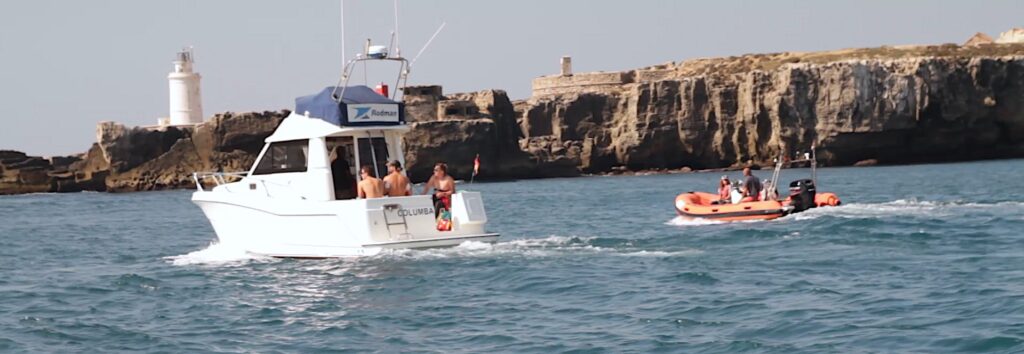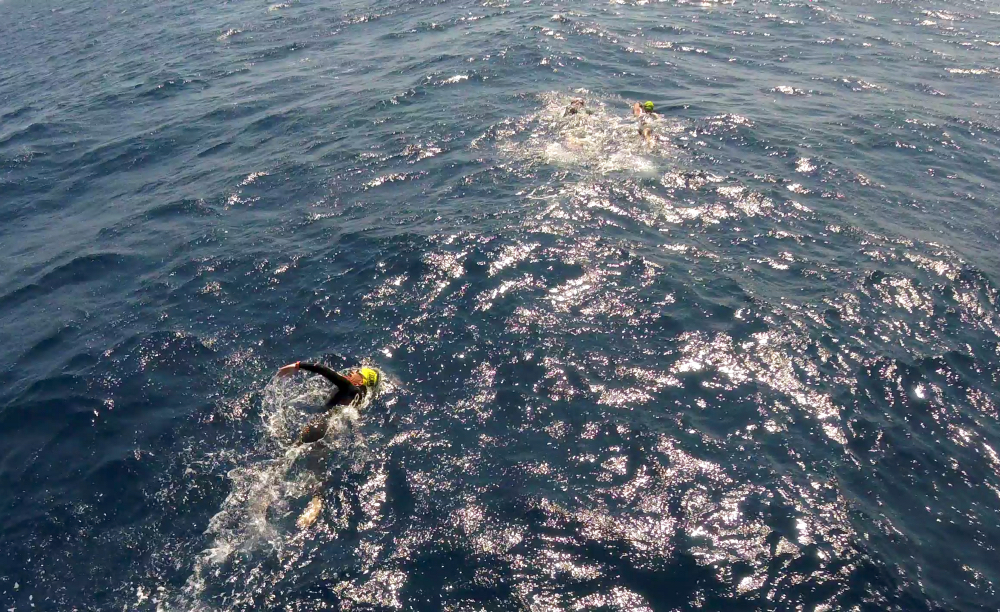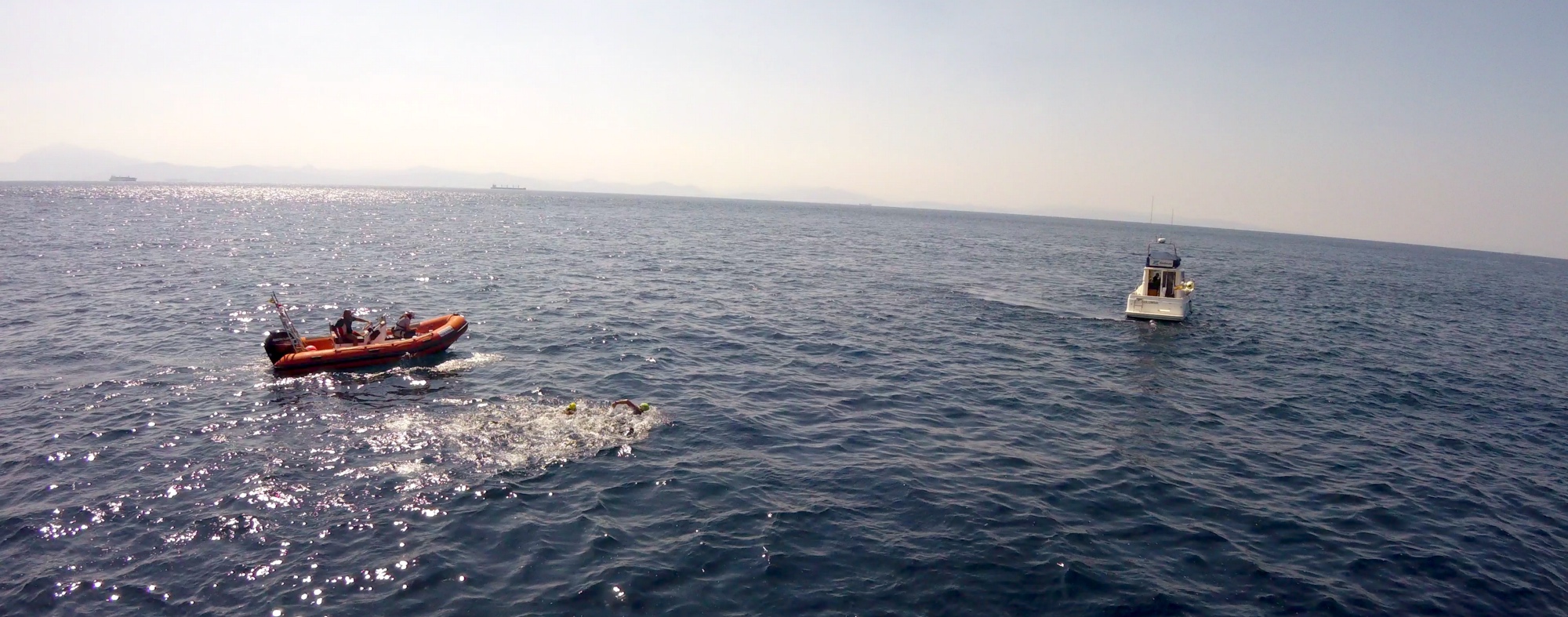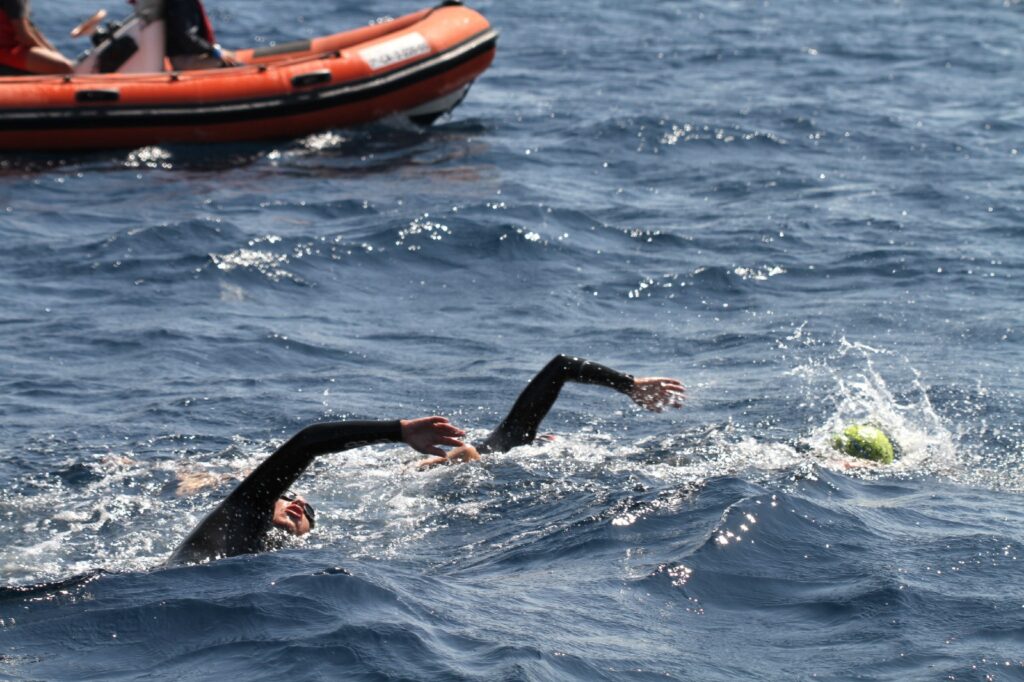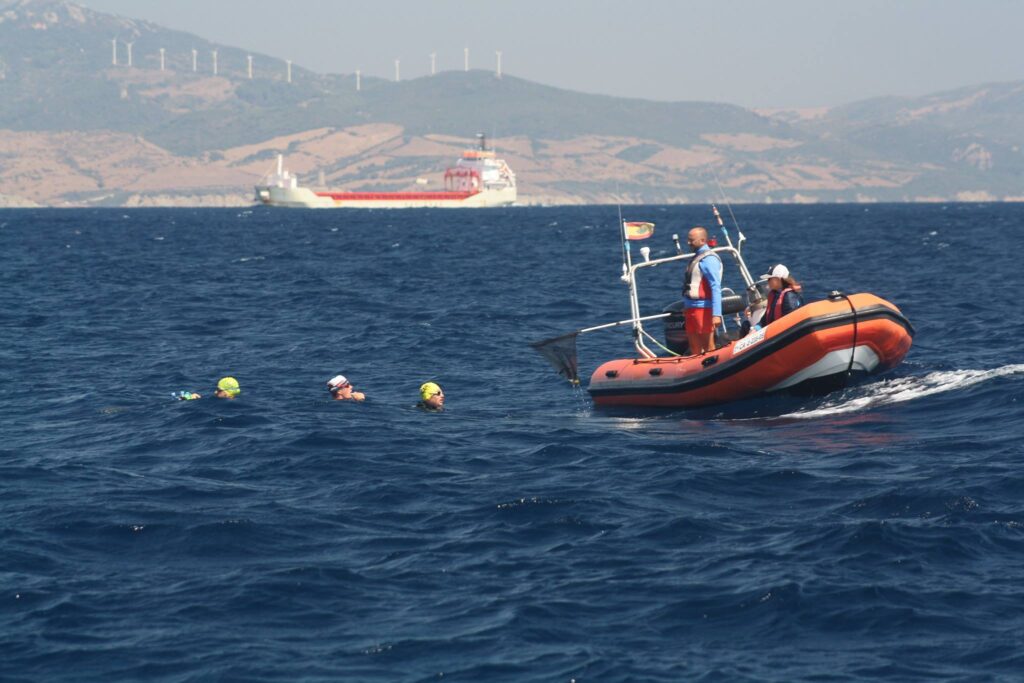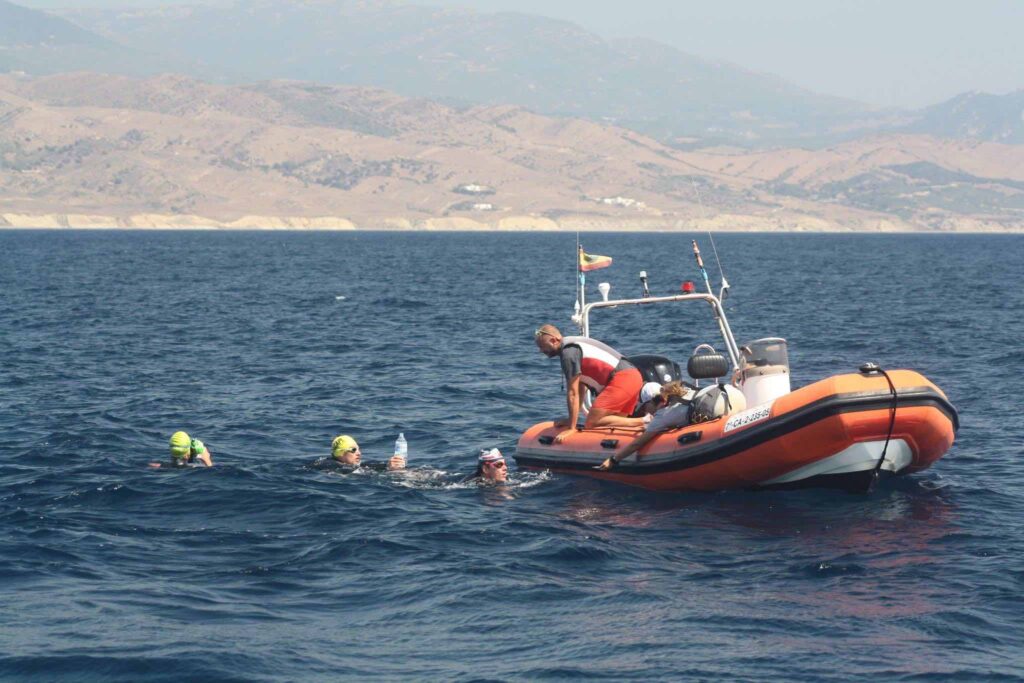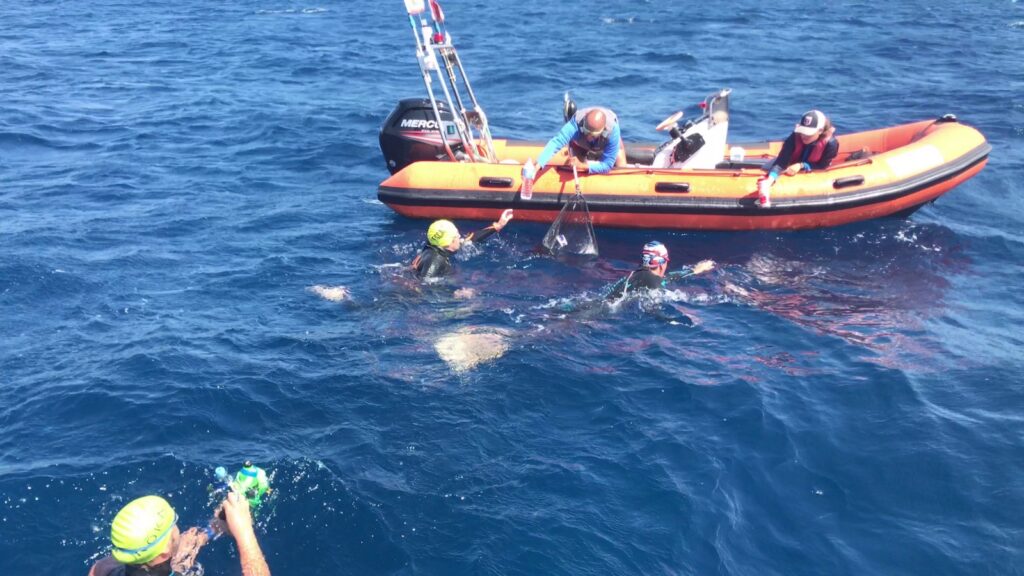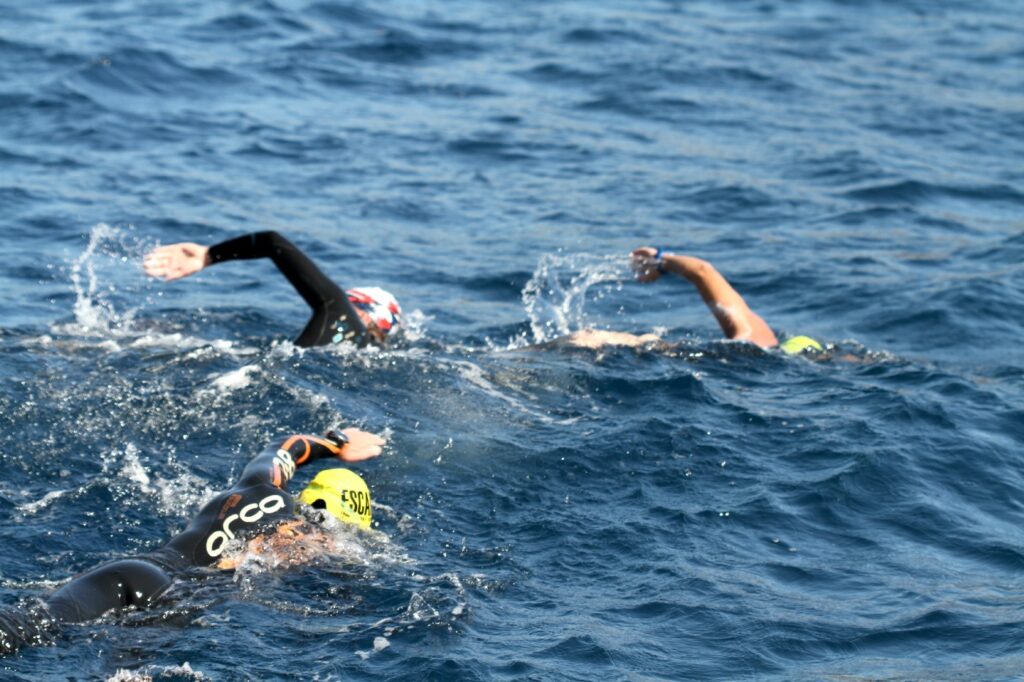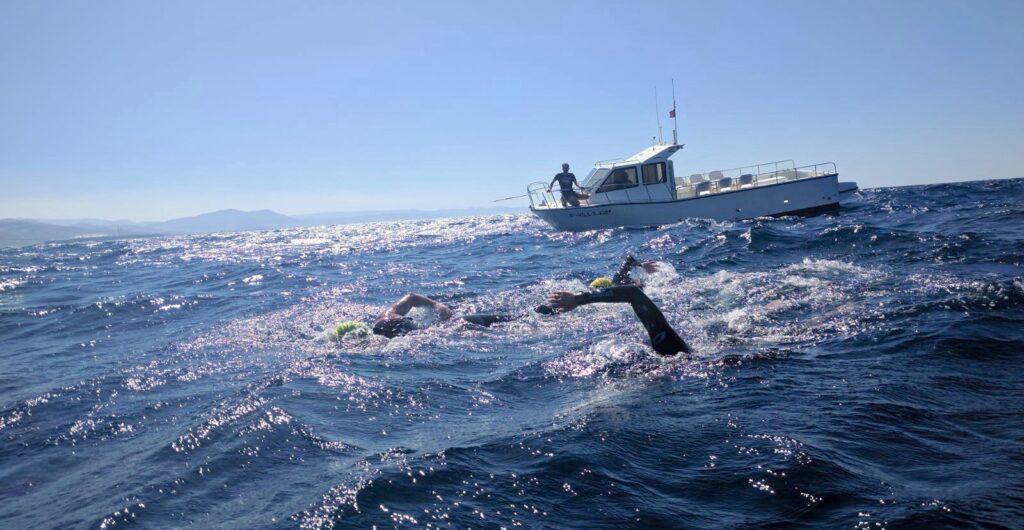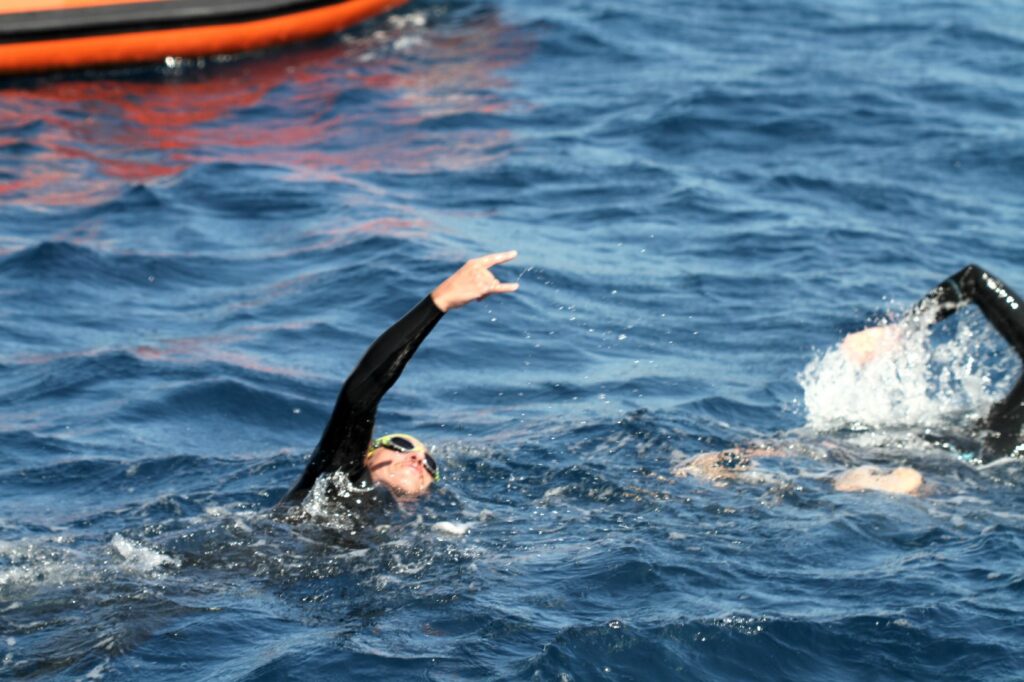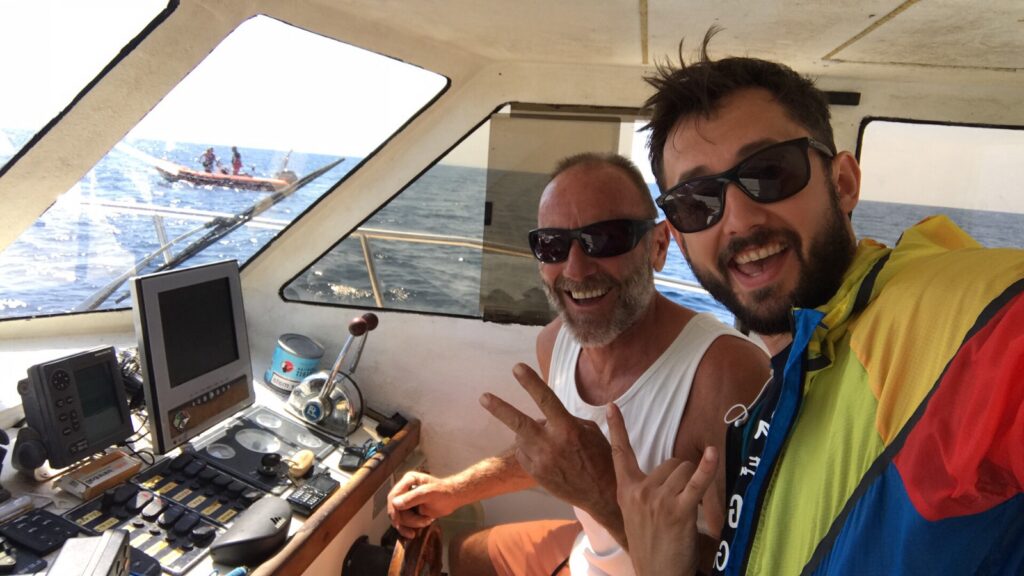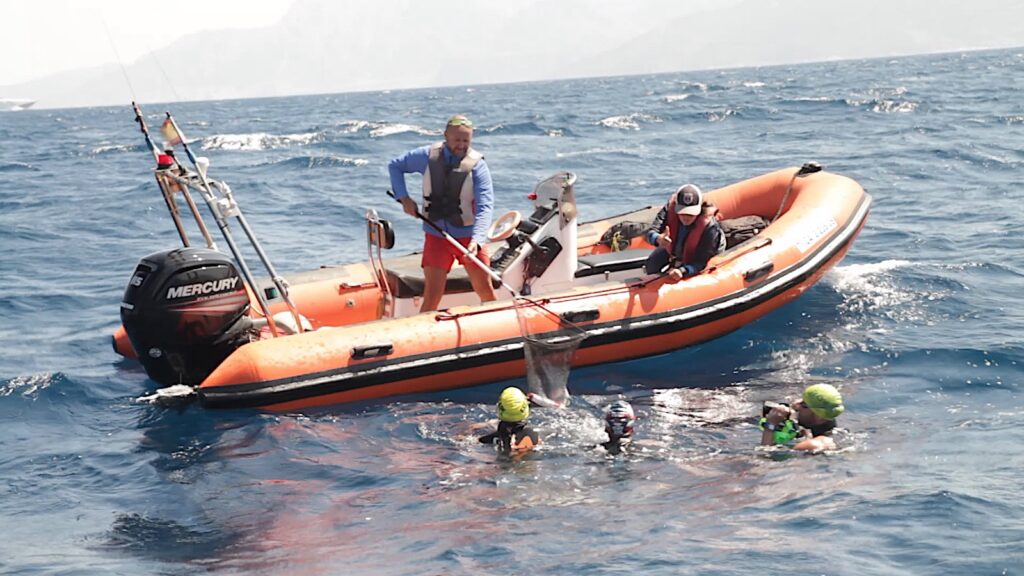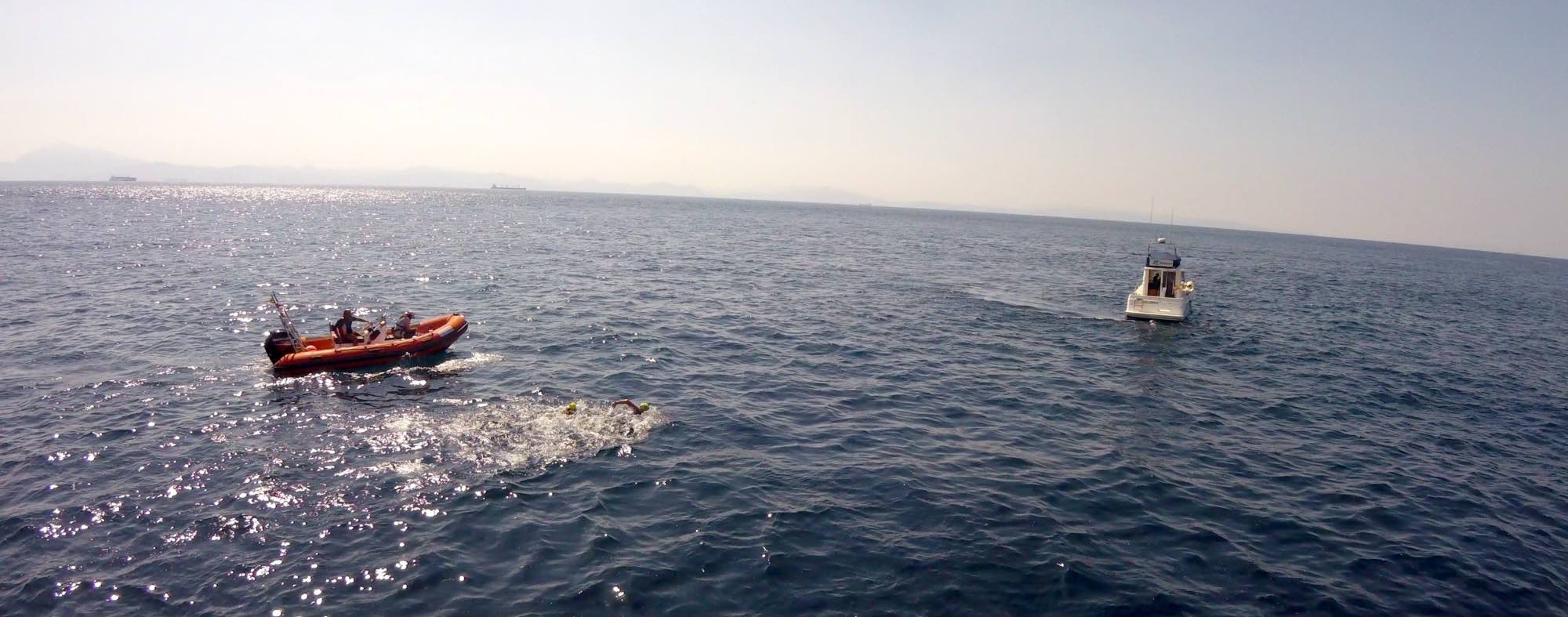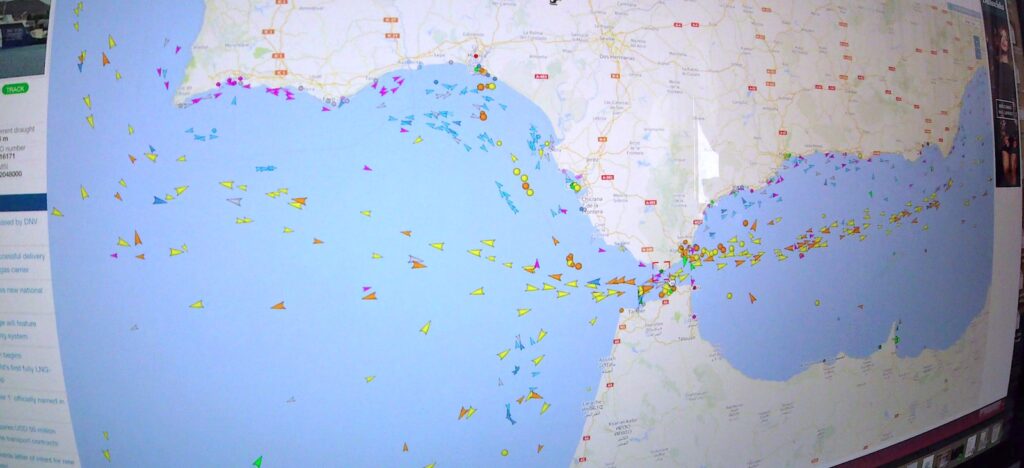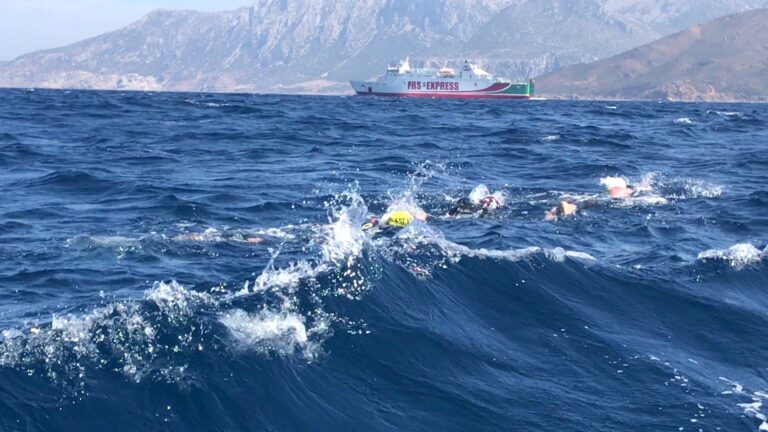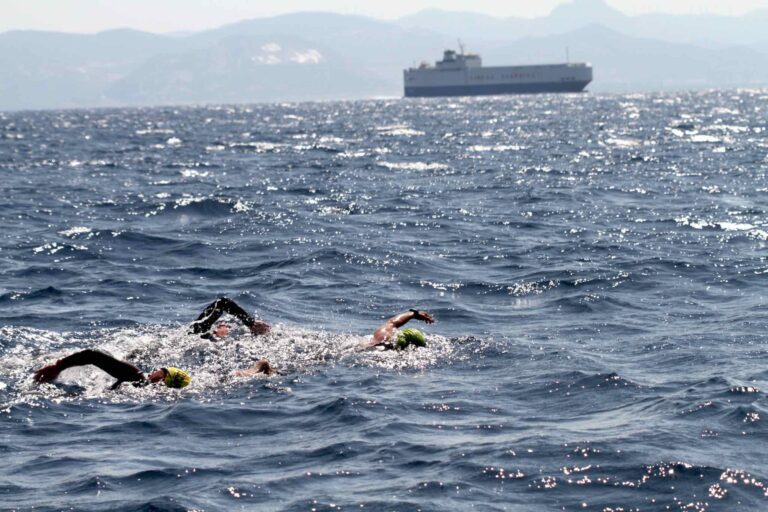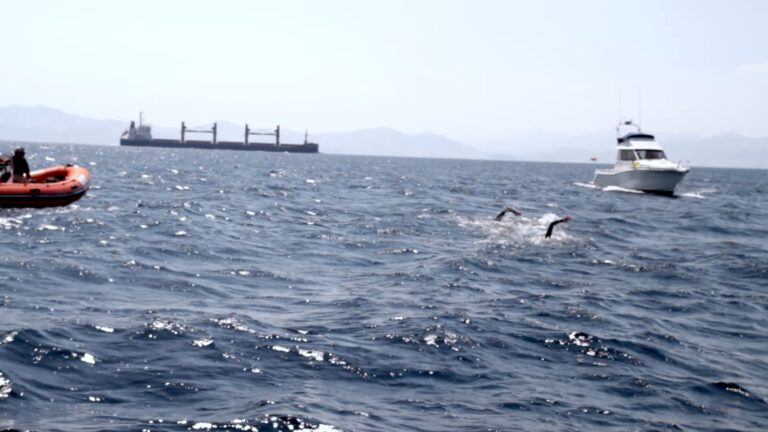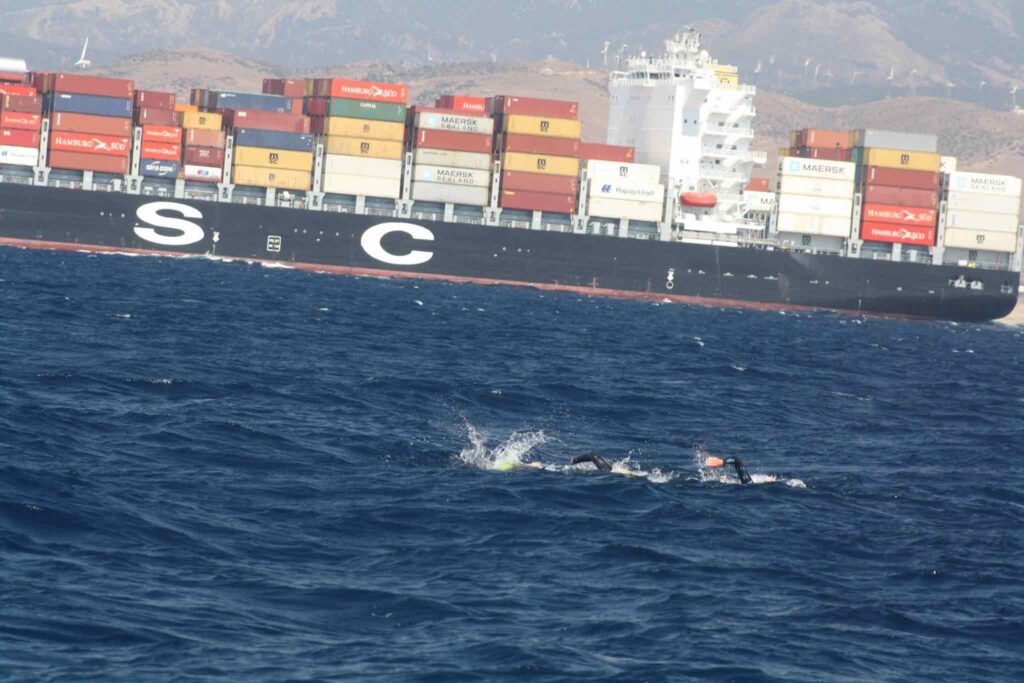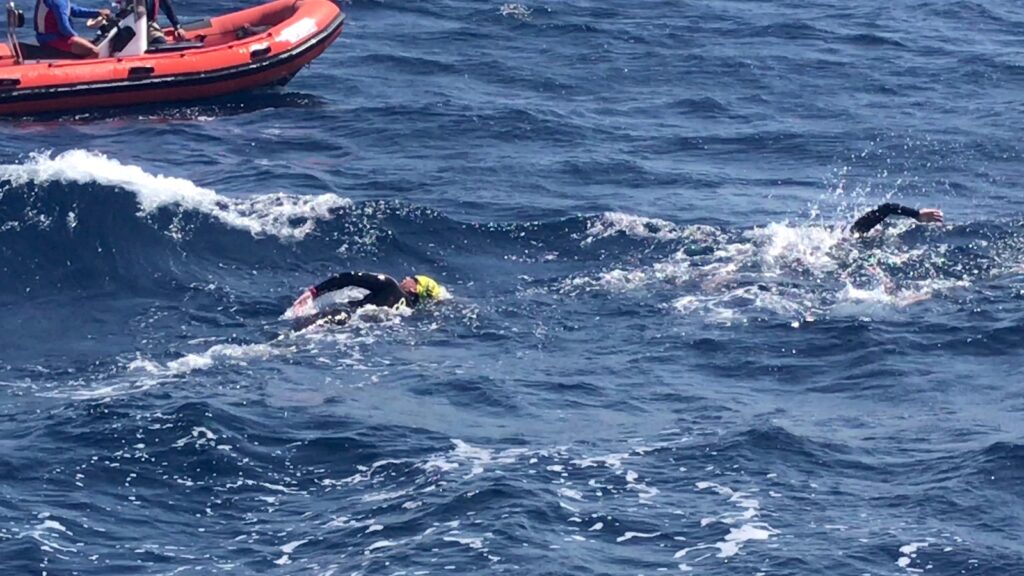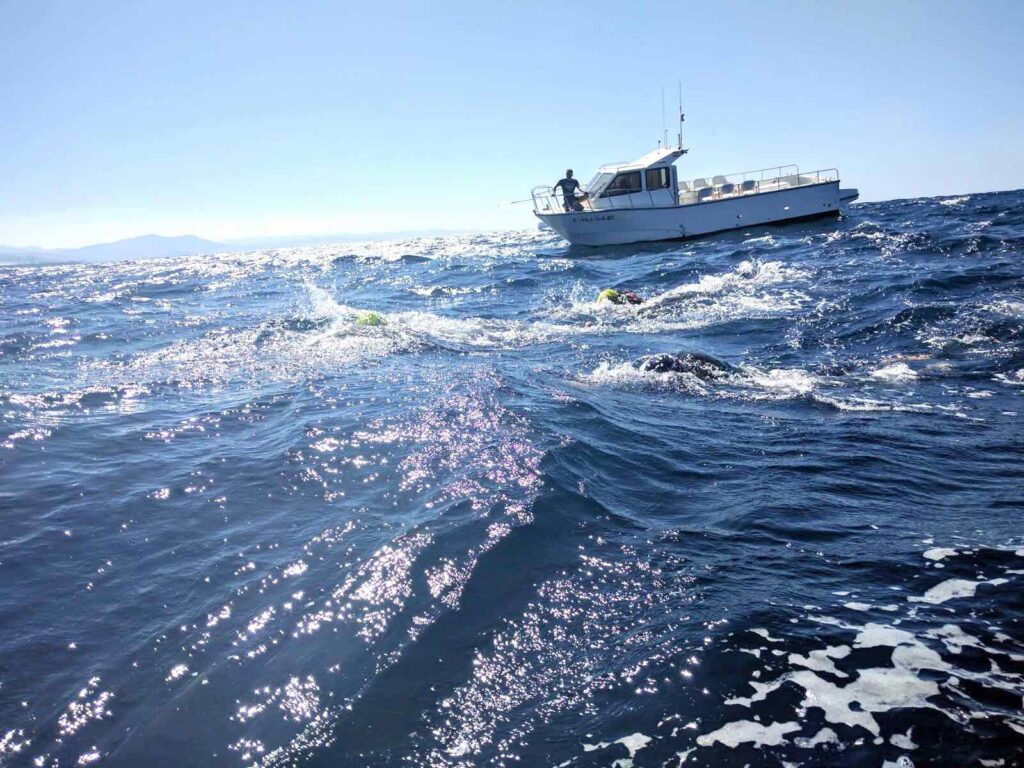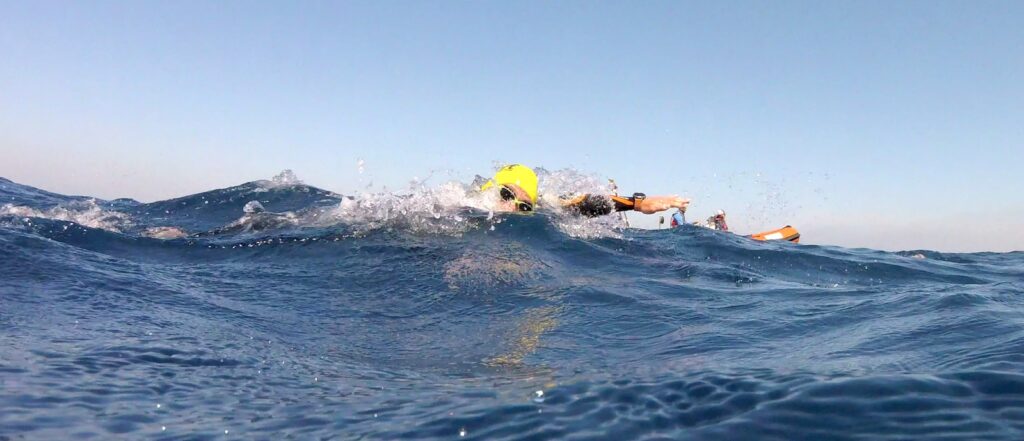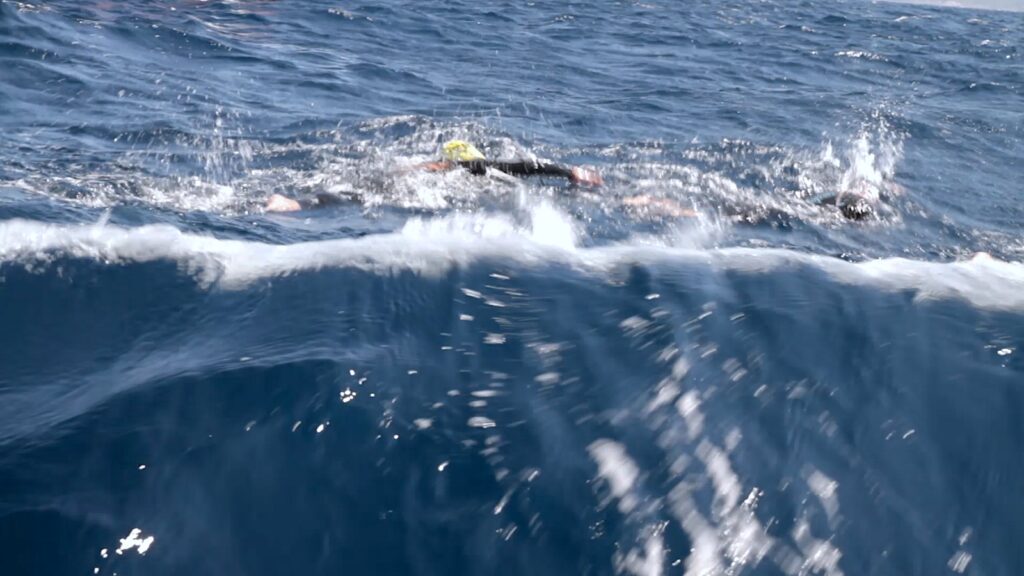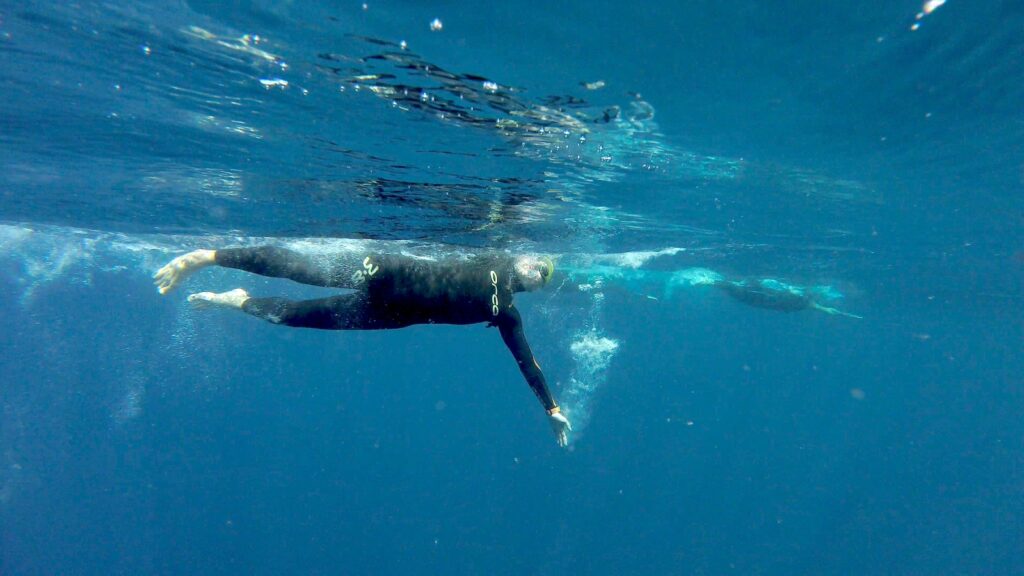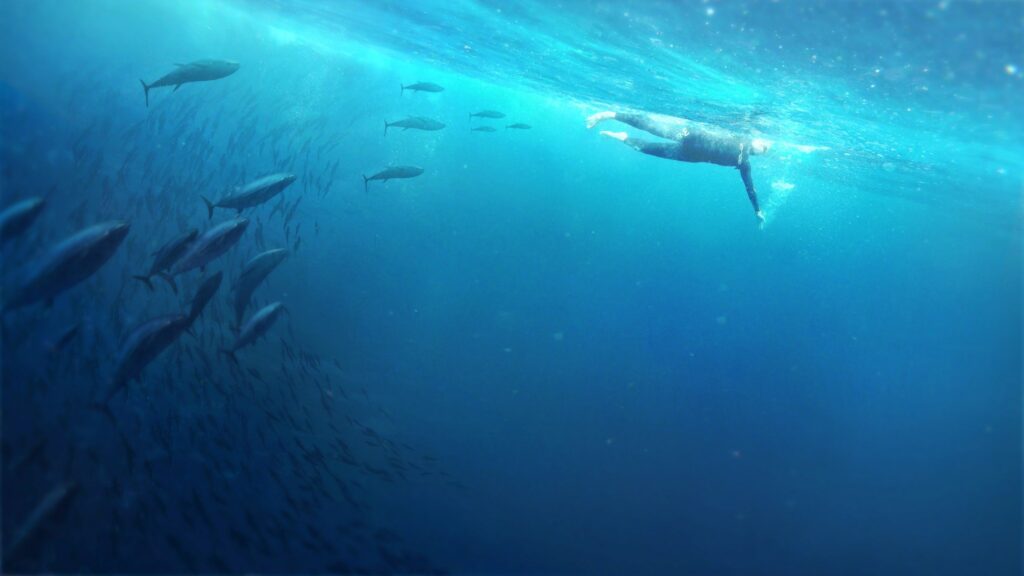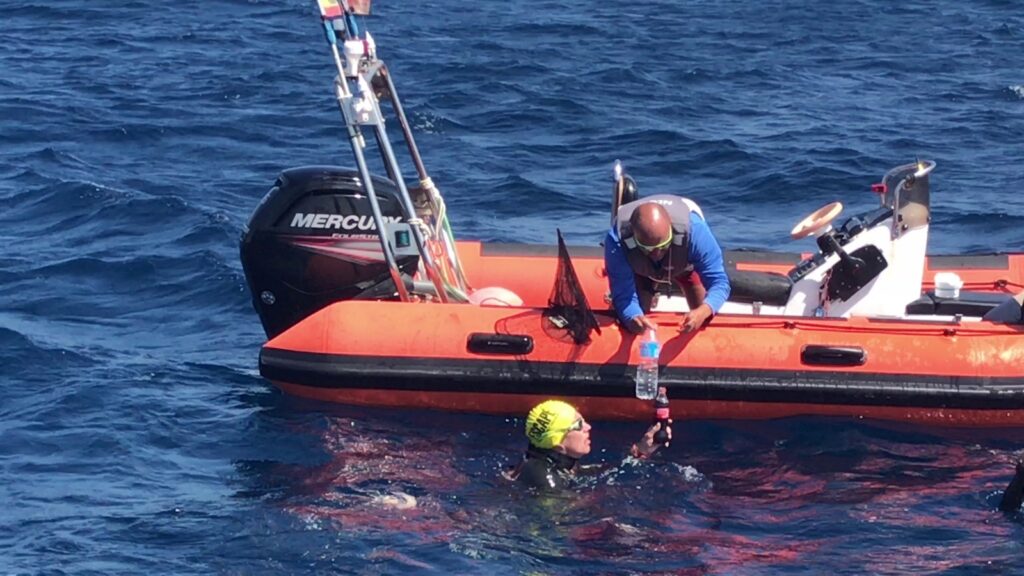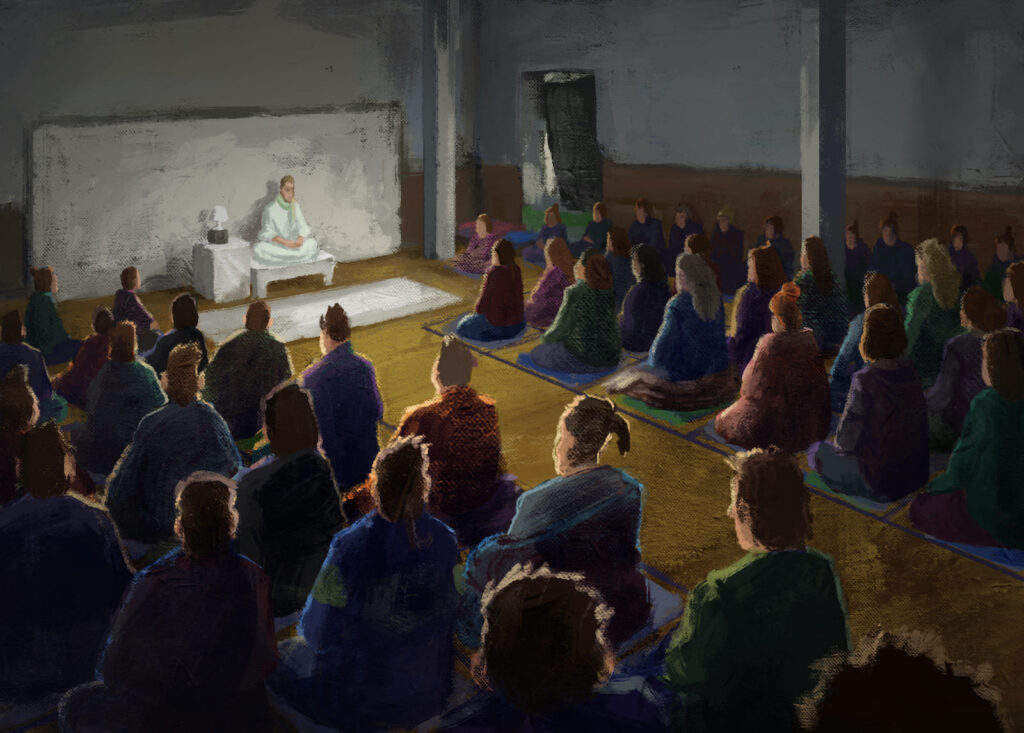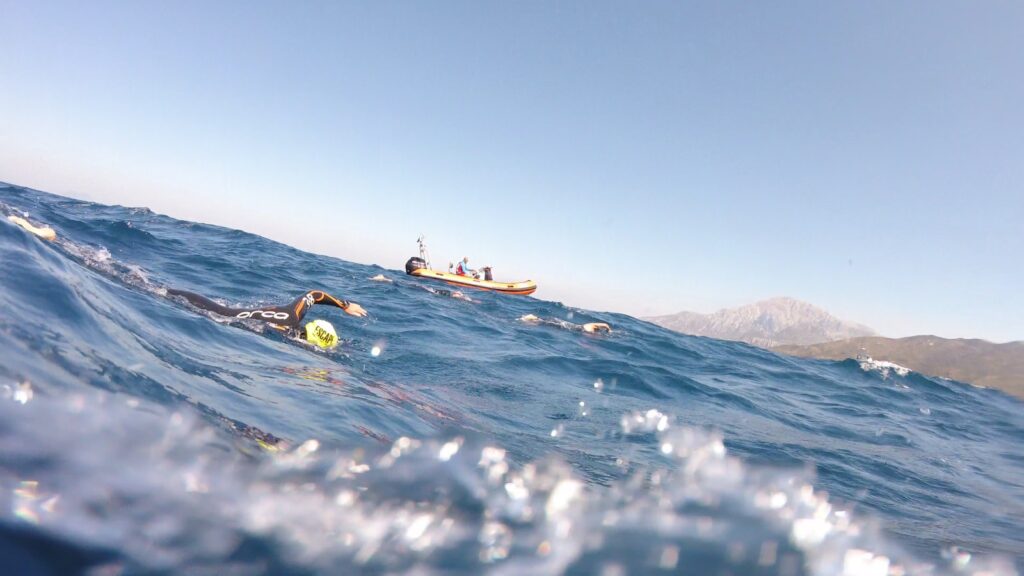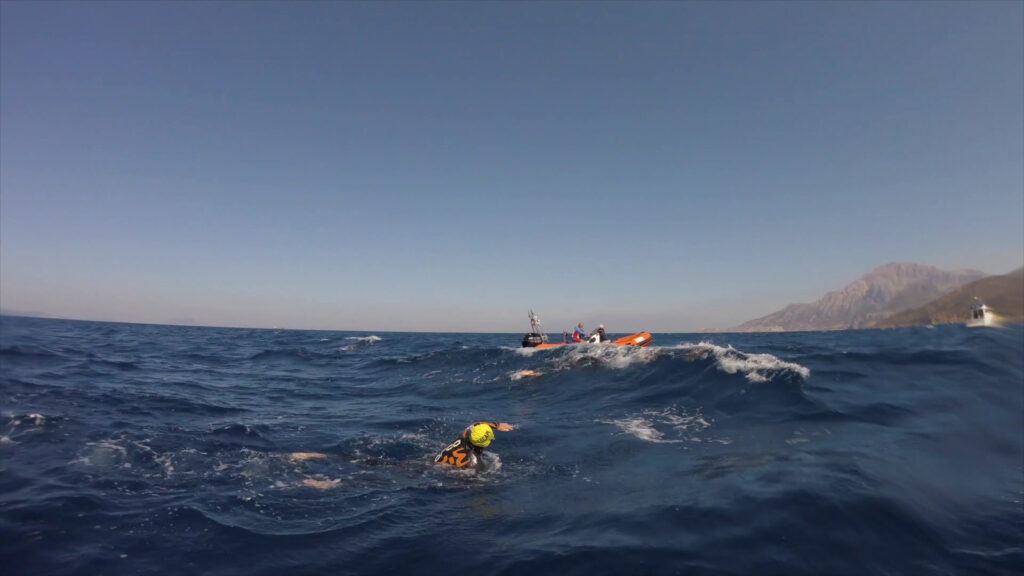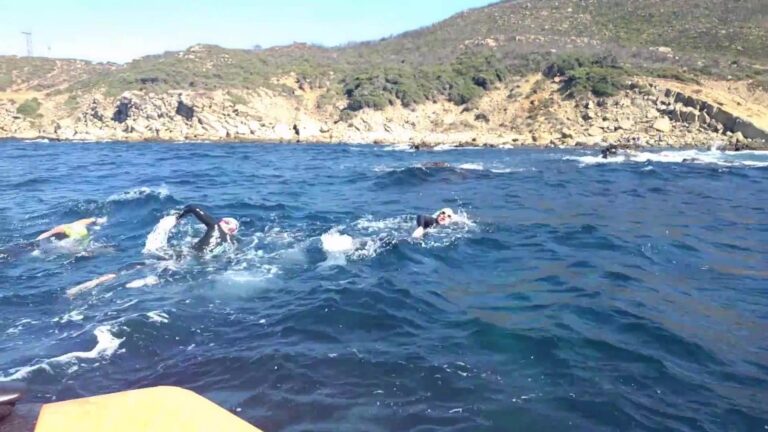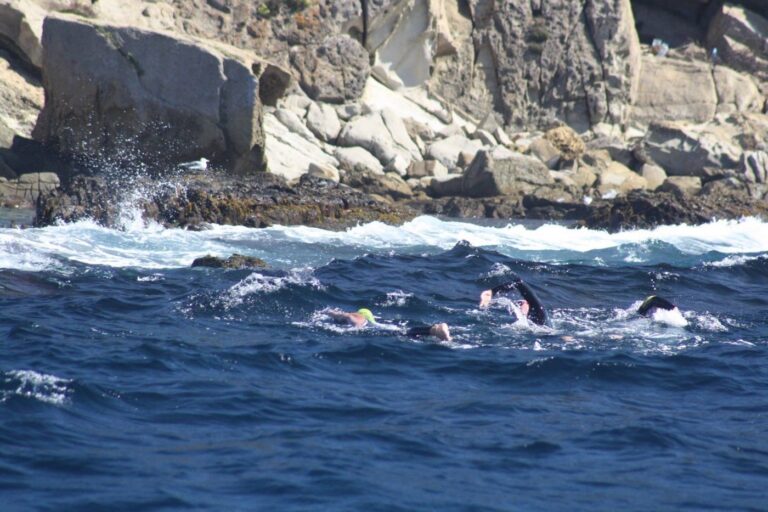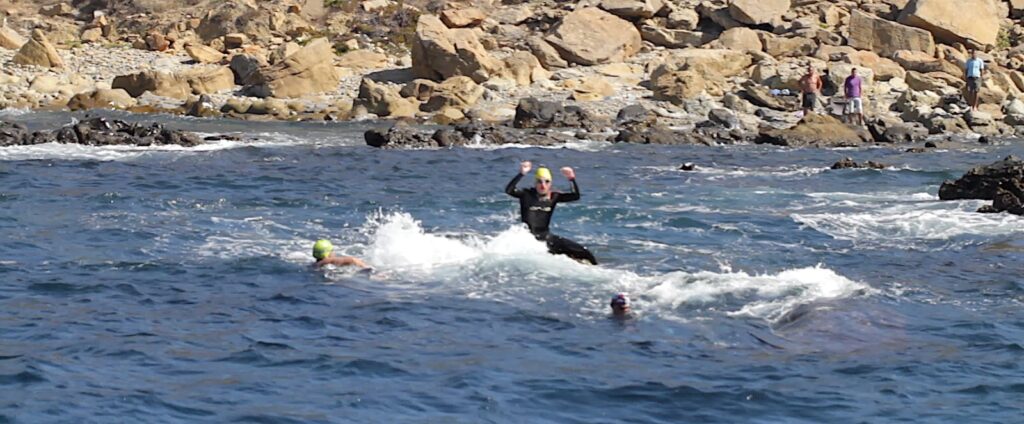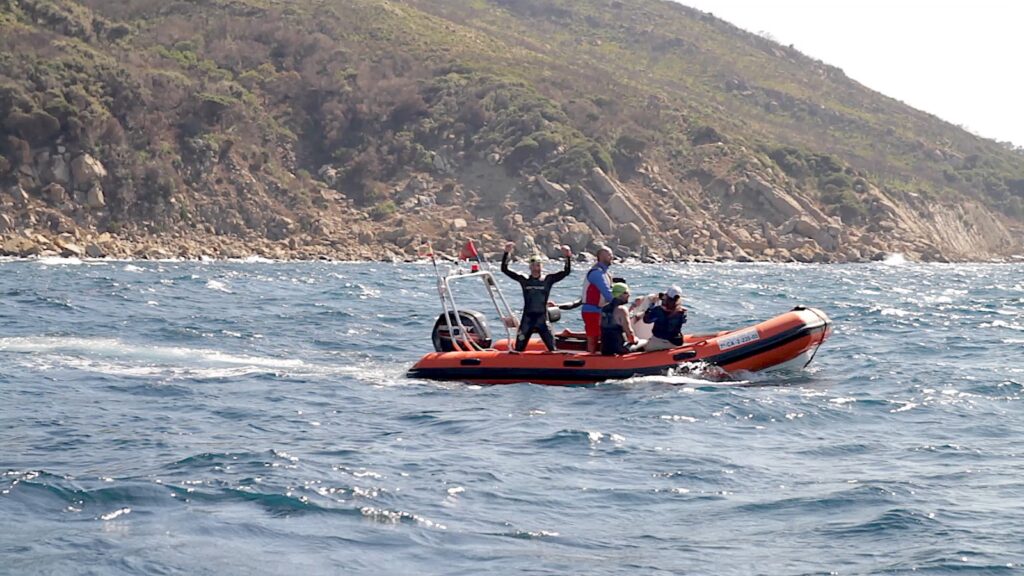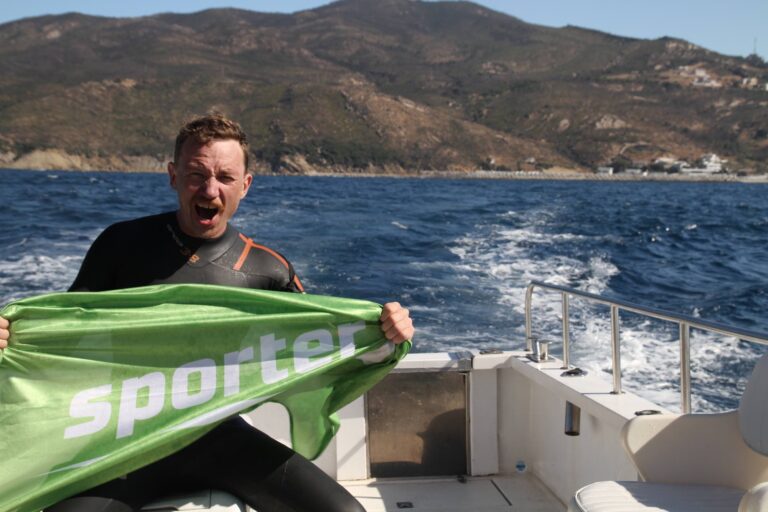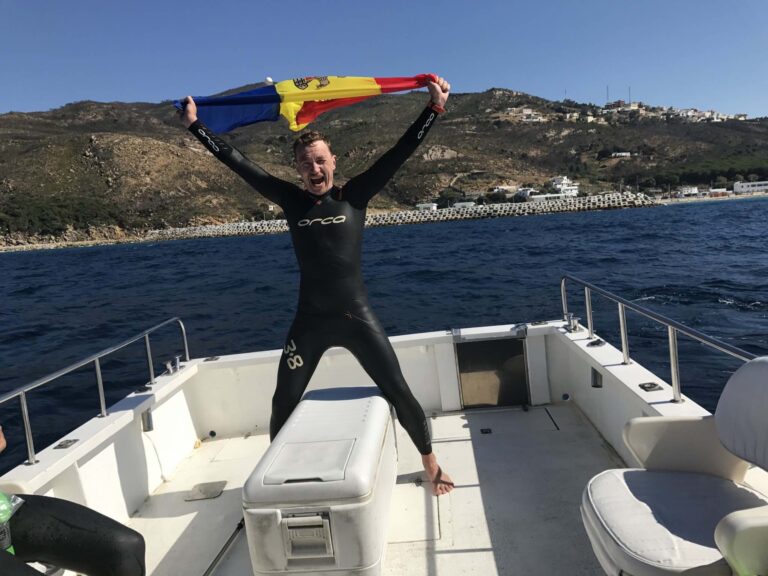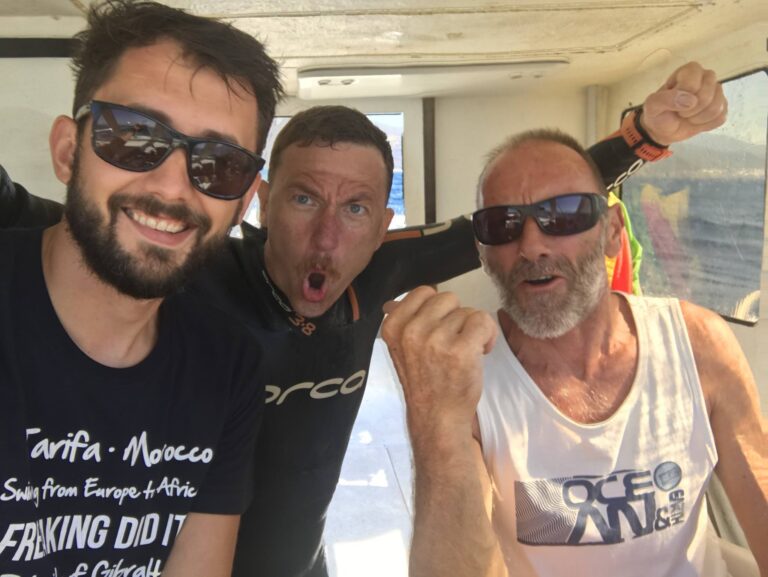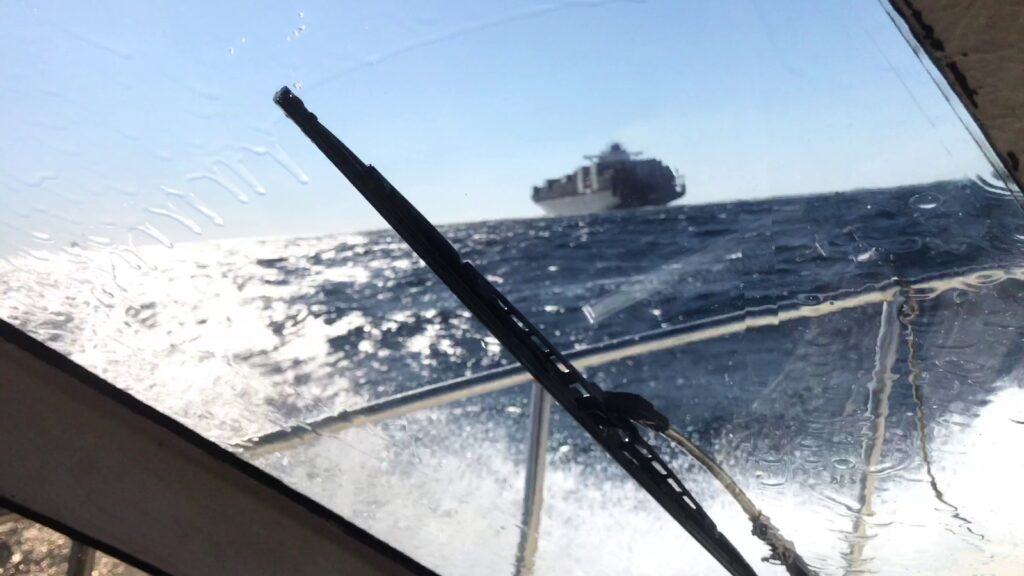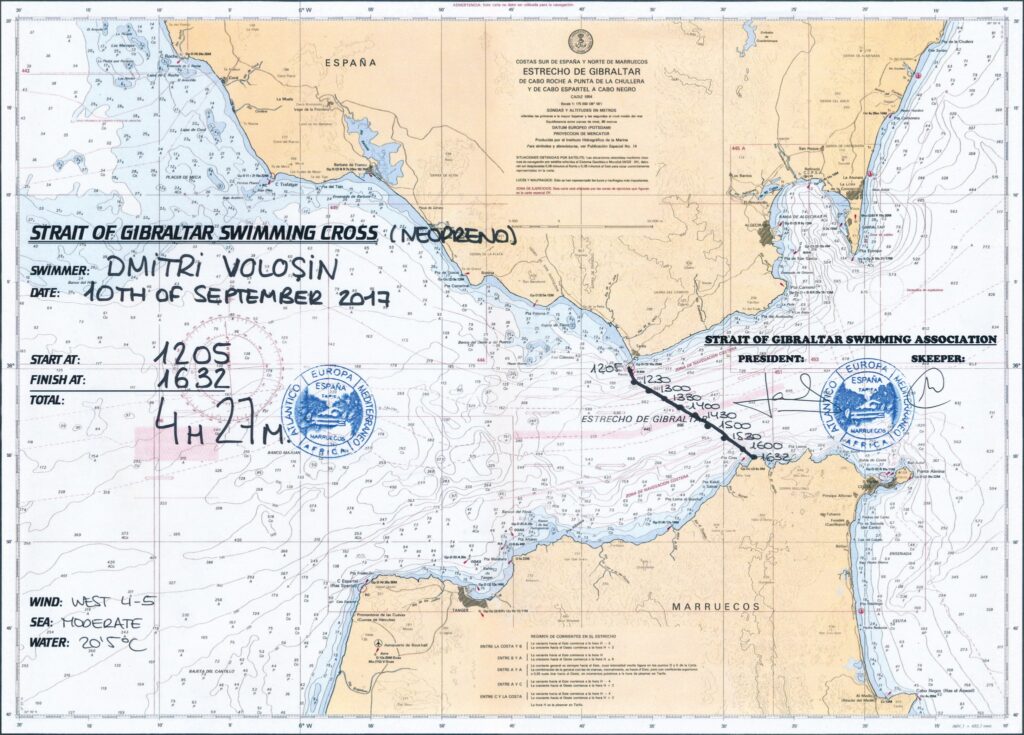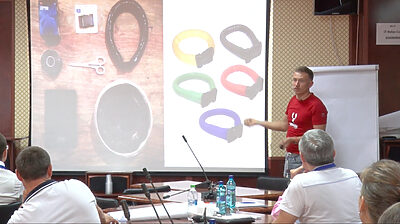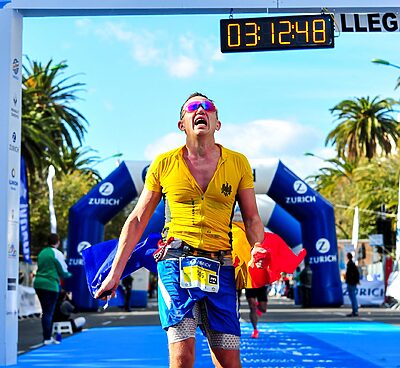I’ve started swimming long time ago. Maybe in my childhood. But I started to learn to swim like professional swimmers do only 5 years ago, in a swimming pool. After a year I crossed the Bosphorus strait and then I understood that it’s not like the boring pool, and it’s really cool. And so a new passion appeared in my life – openwater swimming. Then I swam across the Moldovan lake
Ghidighici, the Indian Gang, the lake Balaton in Hungary and the lake Zurich. I swam with imaginary sharks in the Philippines, froze in the Baltic Sea at Otillo, fought with currents in Mexico at Oceanman Cozumel, escaped from the Alcatraz prison and the If Castle.
And the only thing I was dreaming about all this time was to cross the Gibraltar strait when I grow up.
And, apparently, I did grow up, because now I’m sitting in a bus which brings me to the southernmost point of Europe – Tarifa, from where I will start my long swimming to the coasts of Africa.
The Gibraltar Strait –
Is a strait between Europe and Africa, which connects the Atlantic Ocean and the Mediterranean Sea. Its narrowest part is between Tarifa (Spain) and Punta Cires (Morocco) – 14,4 km. But due to strong currents, swimmers have to cover a distance of 16-22 km. Moreover, these strong currents – approximately 3 knots (5,5 km per hour) and the intensive shipping traffic (300 ships per day) can drift out to sea even the most prepared sportsmen.
This awesome mix and the unpredictably strong winds have led to the fact that nowadays only 1400 people have successfully crossed the strait – 5 times less than have climbed the Everest.
People usually cross it from June to October, when the water temperature is around 16–21°C.
The Gibraltar strait is one of the seven marathon distances in the «Oceans Seven» club – a symbolic club of marathon swimmers, similar to the alpinists’ club «Seven Summits». In order to become a member of this club, you need to cover seven swimming marathons:
Nowadays, only six people were able to swim all the oceans seven marathons.
Registration
So, how did I get here? A very good question, thanks.
Three years ago I found the official organizers’ website www.acneg.com and wrote them a letter, that, well, I want to swim.
I was ignored for a long time, then told that there are no more places this year, and they promised to sign me for the next swim.

Next year, after five letters, I was happily told that there ALREADY are no more slots, but I was assured that in 2016 I will definitely get one.
But 2016 proved that the Spanish “definitely” is more like the Moldovan “maybe”. Well, I understand that the strait doesn’t have elastic limits, but why would you mess with people’s heads for so long? In short, I got very angry and started looking for an alternative. And found it.

Neda el Món — is a company which organizes swims in Spain. Fortunately, they collaborate with ACNEG, buy their slots and then resell them. Every year they send 6 groups of people across Gibraltar, 4 people in each. In autumn I made a request, paid 2400 euro and started preparing.
Preparation
In the middle of March, Neda el Món invited all the 24 selected swimmers to the first meeting, acquaintance and testing in a swimming pool. It happened so: we were distributed to 6 lanes, 4 people on each. And then, throwing the swimmers from one lane to another, were formed the groups of swimmers who have similar average speed. I got in the second group of six.
You think I started to swim? No, I didn’t. I ran. In April I was going to run 250 km in Sahara, the Marathon des Sables, and swimming could not help me drag my body and a 10-km-weight-backpack through the desert.
Back from the desert, I dusted off my swimming trunks, put my sneakers on the shelf instead of them, and went to Barcelona to the training session in open water by Neda el Món. After swimming 7 km in the sea, I was really embarrassed, because I couldn’t cope with my colleagues’ pace.
Really ashamed, I promised to Poseidon to learn to swim like a fish, and went back with a firm determination to exercise a lot.
And so began the dreary trainings in the pool, 12-15 km each week. I used to swim so much, that now I can say I know every little tile on the bottom of that swimming pool. And so as not to go nuts because of talking so much to these tiles, I also participated in some competitions:
In June I swam 5 km in Marseilles, escaping from If Castle — Le Défi de Monte-Cristo.
Then were the fast 1,5 km at the premiere of a triathlon race in Moldova — Triumph 51.5
And three sea miles at Seamile Ghidigici 2017:
Then we travelled with Sporter to Bosphorus with 25 other countrymen, where I’ve exercised my navigation skills by swimming in open water, and showed a quite good result.
And finally, for dessert, I’ve left the main start of this summer – the famous Venice canal, which was crossed by only a few people in the world:
At the end of August I will fly to Barcelona, to the final training, where I will feel myself like Neptune’s son – in an excellent physical form and with shining eyes – Hey, Gibraltar, I’m ready!
Tarifa. The world capital of winds.
Two weeks after a hard fly-driving, Iura (my friend from Barcelona) and I came to Tarifa. We were settled in a hotel, and soon after we went to discover the city where we will have to wait for good weather for God knows how many days. So, I will help you discover it too. Tarifa is…
1.The southernmost point of Europe
Especially the cape Isla de las Palomas, which was our starting point. In clear weather you can see the coasts of Africa on the horizon. Here is the shortest distance to Morocco – 14.5 km.
2.The capital of winds
In Tarifa the wind blows permanently. And not just a light wind, but a real gale. Winds are changing their direction and power all the time – perfect conditions for those who like such extreme sports, as kitesurfing or windsurfing. You should never go to Tarifa for vacation, unless you’re a kitesurfer or study wind turbines.
3.The motherland of tariffs
Fifteen hundred years ago, the Arabian started to charge merchants for the use of Tarifa’s docks. Subsequently, the tables for charging fees, including the custom ones, have been applied in other countries, and the word “tariff” has come into use all over the world.
The beaches in this city are so beautiful, and the kites in the sky create such a unique atmosphere, that I couldn’t resist and ran at sunset along the shore with my hair flowing, listening to the waves crash, in the shadow of flying kites …
Eww, that’s disgusting. I’m becoming very sentimental. Maybe it’s the oldness knocking on my door…
Here I met with my fellow-comrades:
Brian from America and Viktor from France. Our fourth musketeer has broken himself something, and that’s why he didn’t come. And now we’re one for all and all for one!
Each of our mornings began this way: we were staring at the huge metal fish-weathervane, which indicates the direction of wind. The tuna permanently watched in the wrong side, so we sighed, put on our wetsuits, and went swimming.
And we swam several kilometers every day, rain or shine, maintaining our fitness and training to swim in a group. And, of course, testing our equipment.
Besides this, we were told about the specificities of swimming in a group, about cost-effective swimming and drafting, drawing scribblings on the sand.
Again these strange words… What the hell is “drafting”, why can’t people name things simpler? They can – drafting is a technique when a sportsman hides behind another from wind/water, saving forces this way. Scientists calculated that you can save 38% of forces swimming at the feet of a stronger swimmer. And here is a video which proves that cycling is all about drafting strategy:
And for swimming this is also relevant, because it lets weak swimmers “cling” to stronger ones. By the way, these are the types of drafting in open water:
As there are three of us, we will swim in a triangle – the strongest one in front, and the weaker on the sides.
And so, studying and learning the theory, we trained every day. And after the training we wandered through the city, waiting until the tuna head points at Poniente, a wind that opens the way to Africa.
Briefing
On the third day we were taken into a secret room, somewhere in the old city, the door closed, and, as no one can hear anything, we were told about everything coming next. But I will tell you loudly, without any shame and in details. So…
In order to cross the Gibraltar strait, you need more than just muscles. You need a sailor experience and capitan knowledge. These are, for example, the factors that can influence your decision to cross a sea.
Current
The main direction of Gibraltar current is directed to the Mediterranean Sea, and its speed is 3-4 km/h. This happens due to the fact that in the Mediterranean Sea water evaporates faster and becomes saltier. Salt water is heavier and goes down, while fresh water from the Atlantic Ocean comes on the top. Therefore, on Gibraltar surface can be observed a sea current, and on its bottom an opposite one – to the ocean, but it does not interest us.
Tides
Let’s get back to school. On the side of the Earth that faces the Moon, the water rushes to the Moon, carried by the power of lunar attraction. On the other side, due to the tides on the “front” side, the earth is literally pulled out of the water, which causes the tides on the “back” side.
As the Earth continues its rotating process, and the Moon changes its position, tides change every 6 hours. These tides cause a tide current, which speed can grow up to 4 knots. In case of coincidence of tide current direction with the main current, happens an amplification, sometimes up to 5 knots, while the opposite effect can cause a speed-drop, and even change its direction.
Wind
The first two factors are predictable and depend on time and the Moon. But wind is variable. And it’s important to take into consideration not only the direction of wind, but also its force. The direction is important, because swimmers can get floated away to Atlantic, and we are waiting for Poniente – a west-blowing wind.
At the same time, the wind force must not exceed the level 5 of Beaufort scale, or 20 km/h, because the waves will rise so high that the organizers won’t let you start.
By the way, Beaufort has invented a curious wind force scale, which is used nowadays by all the sailors around the world.
And because of the wind we stayed in Tarifa for 4 days, waiting for the fish to finally turn around.
Physical preparation
Swimmers’ speed has also great importance – if you swim slower than 20 min per km, than no currents and winds can help you reach Morocco – you either won’t make it at all or the currents will float you away from the finish line (left from Punta Cires island) right to the military area, where both entrance and swim in are strictly forbidden. Then swimmers are stopped 100 meters away from the ground, put on boats, and their result are waved off.
Strategy and plan
The goal is very simple – the group must reach the finish line in full componence. Therefore we need to help each other, because the finish time is counted by last arrived. It’s forbidden to swim forward or backward more than 50 meters. If someone lags behind from the rest of people and swims slowly, he firstly gets a warning, and then he is put on the boat. Because the accompanying ship is only one, and it can’t split into two parts. Organizers wished us good luck, and promised, that tomorrow we aren’t swimming for sure, but there is hope for the day after tomorrow. Time stretched like mozzarella on a good pizza – infinitely.
And finally the organizers, finding a weather-window, or better to say a weather-window-leaf, decide to send us on the way tomorrow, on Sunday, at 12:00!
Day G
Waking up, breakfast, as a tradition – sandwiches with nutella. For alimentation I will bring with me 4 gels, a banana, mashed fruits, a cola and an isotonic. So much stuff, like for a final journey – jitters, as before my first marathon.
Meanwhile, Yurka is packing the film equipment:
We meet our comrades in front of the hotel and drive to the port. The wind is questionable today, therefore we were prepared to the fact that everything can be cancelled for today right in the port. In the port the capitan licked his finger, picked it up, thought for a while and summarized:
– You’re a strong group, do it!
Funny man, damn it. This caused some tension in the group, and, as it turned out later, for good reason.
The weather today is not perfect at all, up to level 5 of Beaufort scale – the wind force is up to 35 km/h, and the waves rise up to 1,5 meters, jeez… But we can’t wait anymore – tomorrow things are going to be worse.
So, our plan for this swim is the following:
The first hour we swim fast, without stops.
Then goes food time, not more than one minute. Because every minute we will be floated 200 meters away from the finish.
Then we swim calmer, not relaxing, and stay tight grouping.
Eat every 45 minutes.
In the second part of the day the wind will be stronger, and we will have to work more again.
If the leader gets tired, we will change every half an hour.
Last half an hour we will accelerate, and…
Finish – touching the rock near the coast. Getting drunk.
Remembered. Repeated. And went to prepare for the start. Viktor suddenly treated us to some strange vaseline – for udder. I can recommend it.
Saying goodbye to our friends from the following group, and mentally crossing ourselves, we climbed on the boat that brought us to the start place.
According to the rules, we need to touch the coast rock at the start, and after that is given the start signal. But looking at the 2-meters-high waves, that seem to try to break the rock into pieces, the organizers decided to change the starting protocol.
– Just swim to the rock NOT closer than 5 meters, or we will have to scrape you off the cliff.
And here we are, dangling in the water like three rubber-duckies, with the waves hitting us from all angles, and we can just look one at another with big eyes and ask a single question – are they serious right now?
And to prove the seriousness, sounds the whistle. We can’t hear it because of the crashing waves, so it sounds one more time, more and more. Let’s go!
My heart is insanely beating, the waves cover us completely, guys are somewhere ahead, I can’t see them due to the waves. In short, I think today is not my day. And while I’m thinking what could I do to anger Neptune, the tide waves disappear somewhere behind, the sea becomes clearer, and I can see my colleagues’ hands ahead and rush to them.
0–4km
In fact, on the first hour you need to boil the ocean. Not literally, of course, but to rush, to accelerate, to hurry, to sprint, to strive, to fly and to stroke like a crazy! Or the currents will float you away. Rather to the Spanish coast. No stops, no complaints, no food or other girl stuff. Therefore you need to calm down, get your shit together and stop hoping for a miracle.
Brian’s legs are slowly getting closer. Nothing surprising, he’s a swimming coach with 20 years of experience, and Viktor is a professional lifeguard. In short, real horses. However, we are a team, and have to swim together, as the group’s time is considered by last swimmer arrived. So, after 500 meters I catch them up, and we begin to work as a team. Three strokes – right inspiration, three strokes – left inspiration. My heart calms down, together with the waves and my consciousness.
The water is cool – 17 degrees, but I can’t feel it in my wetsuit. And 30 meters ahead a little white boat is swimming, and showing us the way, taking into consideration the currents, the wind and other weather factors.
And so an hour has passed. I hear the whistle, we swim to the boat – first meal. My watch shows almost 4 km.
Eating in water is not like in a Michelin-restaurant. Even though the prices are the highest I’ve ever seen in my life, because the accompanying boat costs 600 euro.
You swim up to the waiter and scream hoarsely, spitting out the sea plankton – water! And he politely takes a plastic bottle and holds it out to you. You do all your best to reach it, drink greedily and, after taking a breath, ask for food:
– Gel, please.
The waiter asks me politely, what kind of plastic am I going to swallow?
– Could you, please, give me the SIS gel with polyvinylchloride taste.
The gel flies towards me, I catch it, open, and squeeze the tasteless substance into my mouth.
– Let’s go! Let’s go! – the restaurant manager screams, – We have no time! I understand the time has come, because a one-minute-stop means plus 200 meters of distance, so you need to eat fast in this restaurant.
– One second, – mumble I, choking. – Isotonic, please… Other visitors have already eaten their meals, and are ready to continue to swim, therefore they look angrily to you…
So you throw your gel into the net, avoid the bottle with isotonic, nervously take a sip, throw it back into the boat and, gargling your mouth with salty-sweet water, rush to catch up your friends. Well, the Gibraltar-swimming-restaurant works something like this. I really recommend you to visit it. Of course, if you can swim ????
4–8km
We have to swim in a triangle. The strongest swimmer in front, the weaker – on the sides. But our triangle is not isosceles. Because of me. Because I, in spite of the high pace (according to my measures – 1:35 per 100 meters), don’t swim on Brian’s side, but at his back, desperately trying to catch him up. In a word, weak link.
Meanwhile, the water has become warmer, and the waves calmed down. I listen to my shoulders – no strong pain yet, but I can hear there are already some clicks. And this is not a very good sign. Try not to think about it. And better try to take my mind off, and look where am I.
Sooo, waves, someone’s legs ahead, darkness underneath, a rubber boat on the right, a white boat ahead, and who’s there on the left? Oh, Yurka, stands on the boat, swinging and trying to take a picture of me. I swim towards you! Yurchik Skutaru is my old friend, who lives now in Barcelona, came to support me and to hold the camera to film a video. Thanks, fellow!
And meanwhile the whistle sounds, and we all together make a turn to the untouchable boat for food. 6,5 km left behind. I can still feel the taste of gel in my mouth, so I decide to order mashed fruits – my secret weapon.
Mmmm, yummy! Mashed fruits aren’t good for running because of their weight (much water), but for such events, where you don’t need to carry your food on your back they’re pretty good. I eat them with some water, receive a warning for touching the boat with my elbow, and we continue swimming. According to the rules of swimming in open water – even a one-second touch of boat can lead to disqualification, so I obeyed.
We are hitting the water. My brain can not think of anything already – slap, slap, slap, slap. Only the feeling of warm water brought me to reality.
– Come on, Brian, move your ass!
But soon my suspicions were cleared, as I remembered that the water in the middle of the strait is by 3-4 degrees warmer.
My wetsuit doesn’t rub me anywhere, udder vaseline works for sea cows, too. Thank you, Viktor. Big ships are constantly swimming in the nearby. Really giant ones, 250 meters in length. All in all, the Gibraltar strait is one of the busiest in the world. 300 vessels cross it every day. This was the traffic during our swim:
The paradox is, that due to the waves and focused work, we haven’t seen any ships. But they were right in front of us. Like ground squirrels. You can’t see them, but they are right here…
8–12km
We swam to the middle of the strait, and soon (2:30 after start) will be our usual distraction – feeding. Whistle, and we, like fish in an aquarium, swim to the master to get our food.
– Maria, how much left? – ask I, breathless.
– A half, my dear!
– How the f…k a half, if my watch shows 9.3 km?
– Your’s still working? Strange thing… Go, go!
I don’t have time to swallow my isotonic, and swim to catch up my guys. How the hell, think I to myself, we have swam almost 10 km, and it’s only a half? I remember how we were warned at briefing that our watches are useless – during km 8-10 tracking stops working. And there is no answer why. I remember my swim in Mexico – there my watches stuck on 8.5 km. Strange. But my watches are, I mean, Watches! Fenix 5, freshly ordered, cool. By the way, what do they show? Again 9.3 km? Hmmm… Got stuck, too. So much for cool. I save the training, and launch one new. Meanwhile I cuss like an eighteenth-century-ruffian, because I have to stop to press the buttons, and by this time my colleagues disappear in the waves. I try to catch them up on high pulse.
But the waves grew steeper, the waves grew starker, and the sky became darker and darker and darker… We didn’t knew then that the wind changed and grew to level 5 of Beaufort – 35km/h. Waves are hitting from the right and from the back, I change to left-side-breathing, so as not to swallow water. I already feel sick even without it – waves do their job – I wanted to empty my stomach long time before, because of the swinging. But I understand there is a few left to the finish, so I put up with it.
My relationship with swinging is not working for a long time. Swings, boats and mountain serpentine always caused me a feeling of sickness only by mentioning them. And as a child I couldn’t stay in a bus for half an hour without making a mess on chairs. And again this feeling today.
All I want is to lie down on the Moroccan land, stretch my arms out and give it a hug. And to lie as long as possible. Well, it can be Spanish, too. In short, any kind, even dung or swamp, the main thing is that it wouldn’t move under you!!!
But there is darkness underneath, from where everything can appear any minute. Sharks are bloodthirsty here, dolphins are playful, and orcas don’t even notice swimmers. Frankly speaking, I would like to meet some small, not bloodthirsty sharks and a shoal of dolphins so they could swim in the nearby and support us with their sea song…
Damn it, it turns out I’m a romantic. But there were no living beings as we could see. But we have met a shoal of tuna somewhere in this places. I missed it while I was fighting with my sickness, but the ship captain told us that he saw a huge shoal on his echosounder at 11 km right in front of us.
12–17km
3 hours passed, we are being fed again. This time I have the dessert – a bottle of cola. Again I’m convinced there’s nothing better than this drink on each race. Maria tells there are 5 km left.
– Well, almost done, – think I to myself. – Not a big deal…
My shoulders are in pain already. They’re on fire. The pain rushes all over my body after each stroke. I remember about Vipassana meditation technique. For those who don’t know – it’s one of the teachings of Buddha, that helps you see things as they are and become enlightened. Last year I spent 10 days near Ekaterinburg, meditating speechlessly for 11 hours a day. One of the practices, additana, teaches you not to suffer because of pain. And I’m going to use it now.
I stop thinking of anything, accept pain as reality and divide it from myself. There is pain, there is no suffer. Of course, it doesn’t mean I don’t feel pain anymore – I feel a discomfort, but a lot less than 10 minutes ago.
We’ve been swimming for 4 hours now, and I wait for the food signal, but it doesn’t sound. In fact, this is good, as I understand the finish line is already near and it making a stop half an hour before doesn’t make sense – anyway, the food won’t manage to digest. But a drink would be very nice now – I feel like there’s a cat pooper in my mouth… And all this sickness because of swinging, I just want to look at an immobile point. But everything is moving around – uuup, dooown…
The coast is slowly getting closer. Swimming in open water all the time makes you think that the coast is almost here, but then you have to swim for an hour, before you can climb on the rock. But everything good comes to an end. And I can see the finish line – 500 more meters to the coast. We start to accelerate – saving forces is now useless, and, frankly speaking, we all want this to finally end. Well, as at every marathon.
And here it is, the long-waited finish – waves crash onto the Moroccan shore, where a few shocked fishermen are meeting us. They don’t look like soldiers, and this means we came to the right place. We get closer and try to climb on the nearest rock. The whistle sounds.
Finish! 4:27. 4:27.
We embrace each other in the water – an American, a Frenchman and a Moldovan finally crossed a sea! An emotional tornado, I think level 100 of Beaufort. Dopamine is off-scale, serotonin invites to give a hug to the Moroccan fishermen, I decline politely this invitation and we swim to the boat.
There organizers congratulate us, and Yurka has found somewhere a bottle of brandy to celebrate this successful swim right on the boat that brings us home. Of course, there are lots of emotions, and I want to scream in the fresh air, a thing that I do:
Taking a deep breath, I climbed into capitan’s cabin, sit down on helmsman’s place, looked through the window and hovered. Waves crashed against the glass, helpless wipers tried to clean the splashes. My head was empty.
This swim is like an another try of wipers to clean my mind of a great will to overcome myself. But this was only for a second…
A new wave comes and covers with the head, and I find myself planning a new adventure.
Results
Then was a long and funny process of taking off the wetsuit with tired hands, shower, rest, certificate, awesome tuna with wine and a bar party, that suddenly ended, because I simply couldn’t open my eyes after another shot of tequila. Yurka couldn’t get why did I give up so fast today, since crossing the Gibraltar strait is not a reason for going to sleep a 1 AM. I agreed with him and fell asleep on the bar…
So, the results:
Time: 4:27:16
Distance: 17.3 km
Water temperature: 17–20 degrees
Wind: up to 15–35 km/h
Track: https://connect.garmin.com/modern/activity/1997819577
Post Scriptum
Only after Gibraltar I can name myself a marathoner-swimmer. Feelings reminded me of my first marathon in Paris. And so as the running one, I will never forget this marathon, and it will be the first forever, a little naive, amazing and unpredictable…



